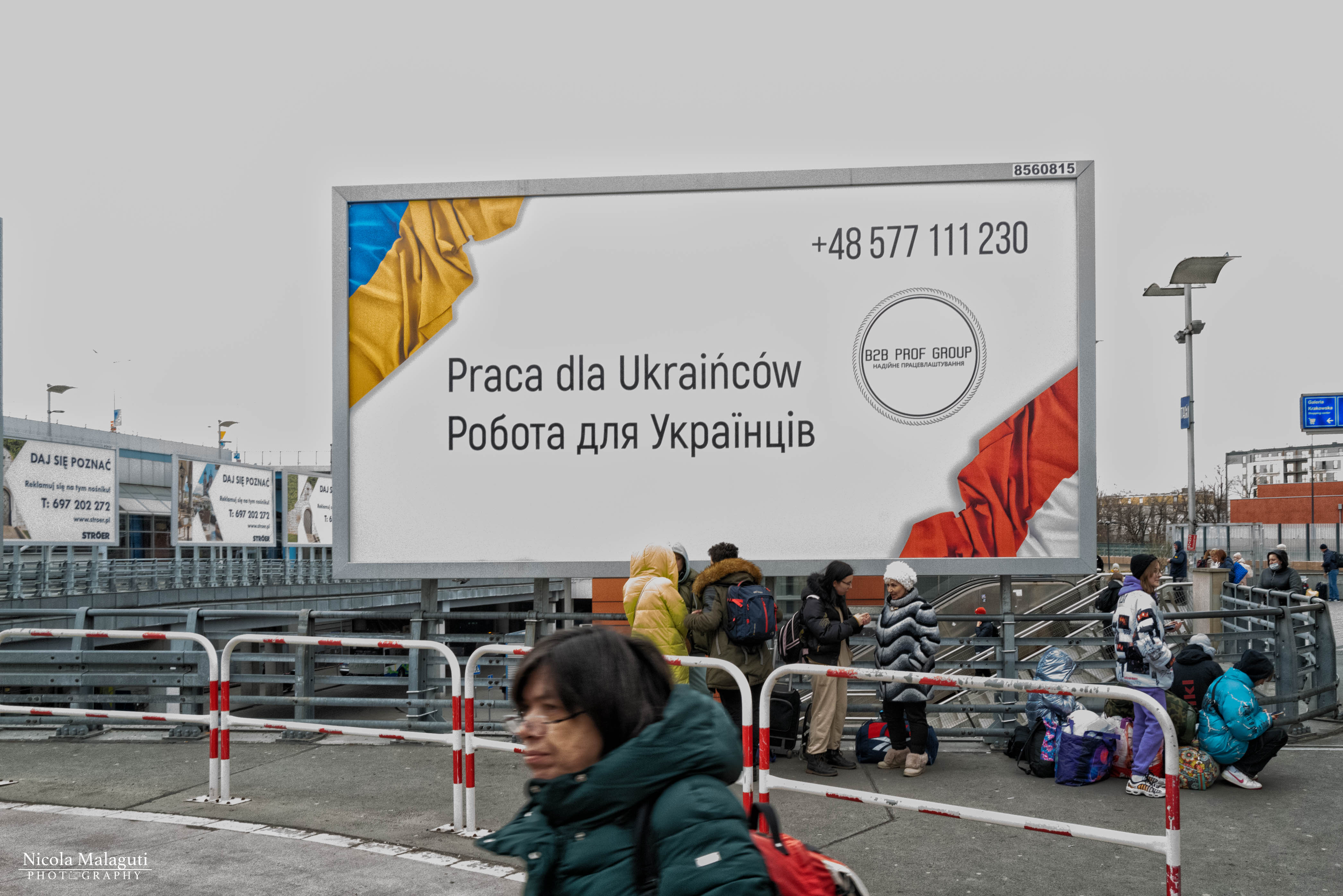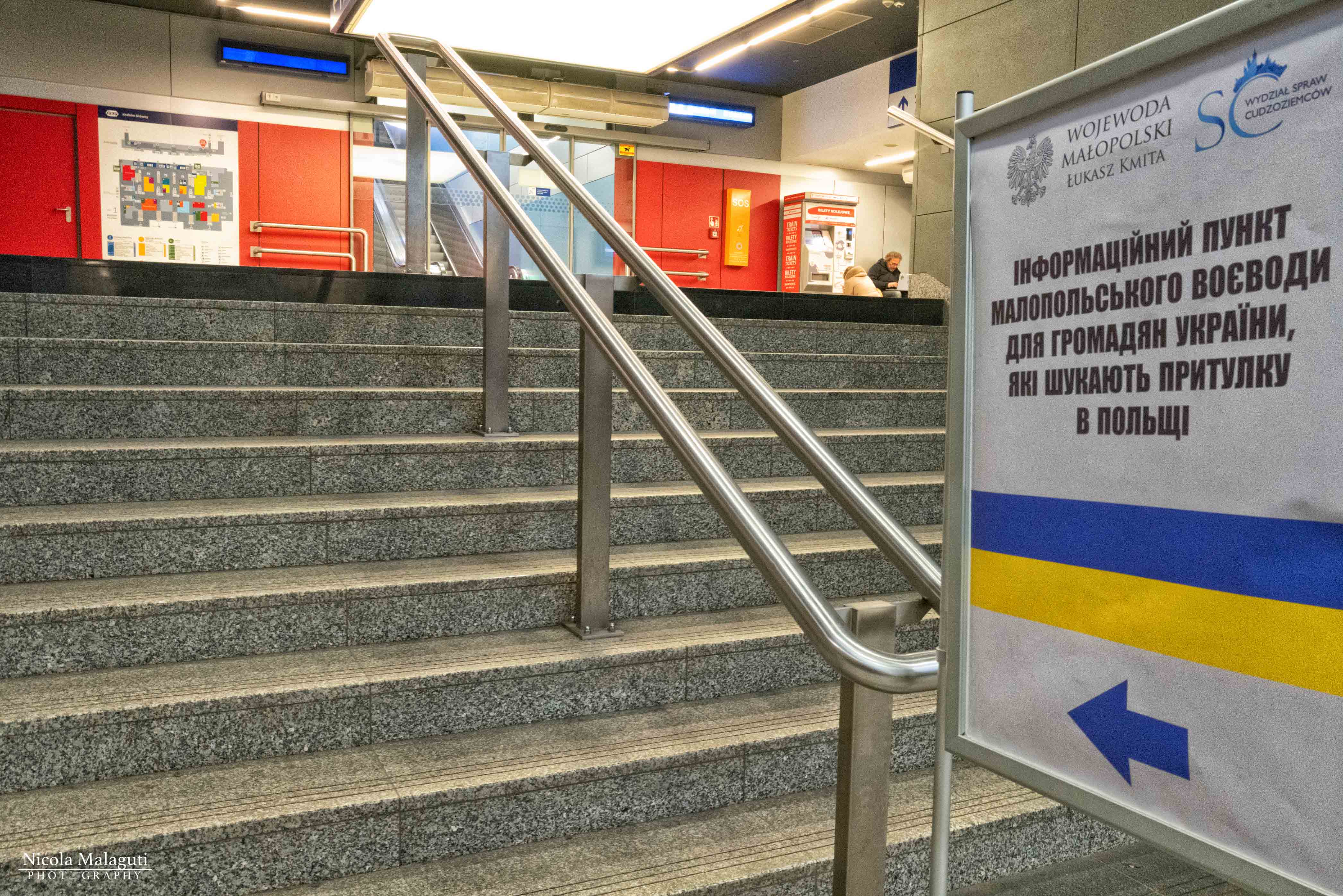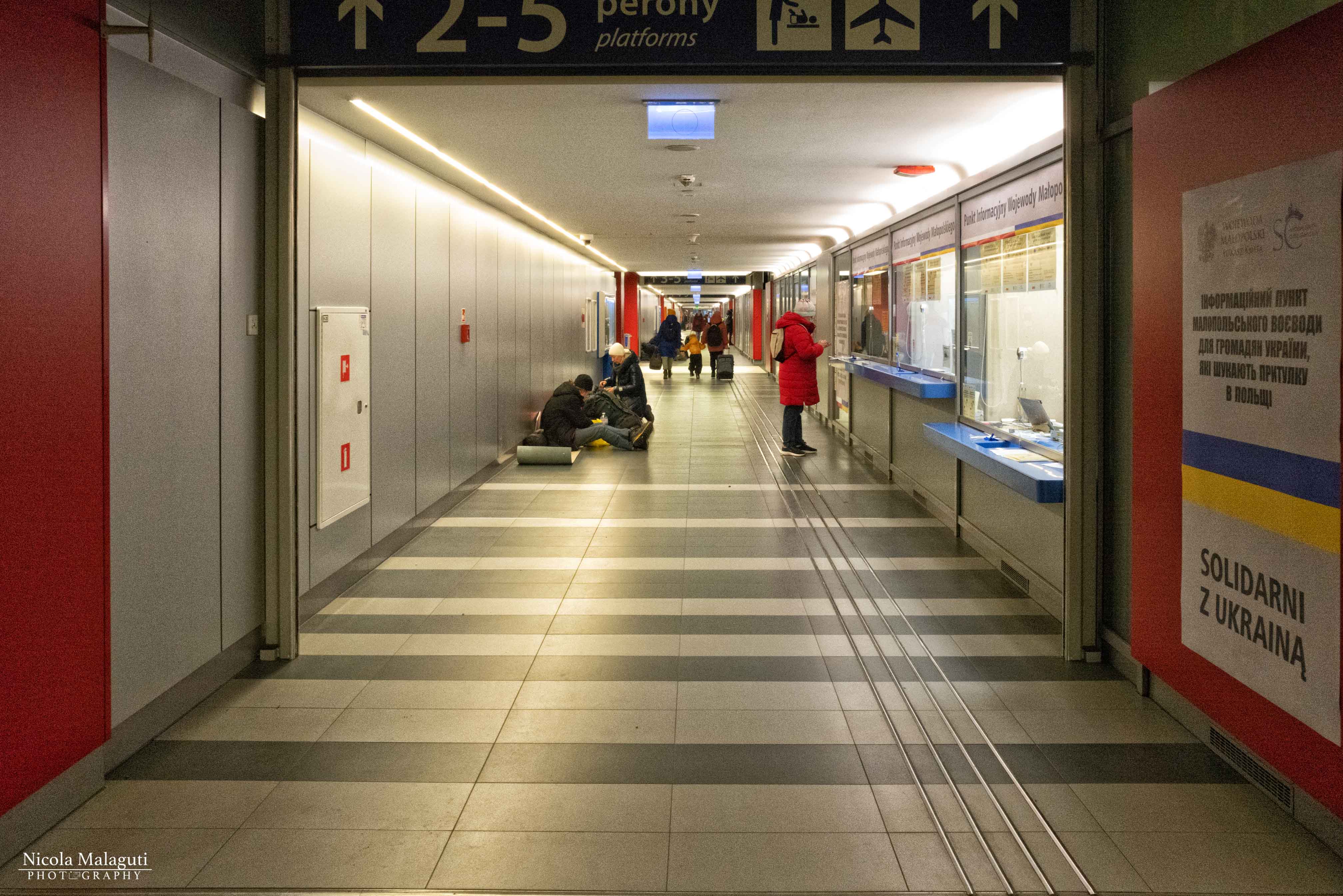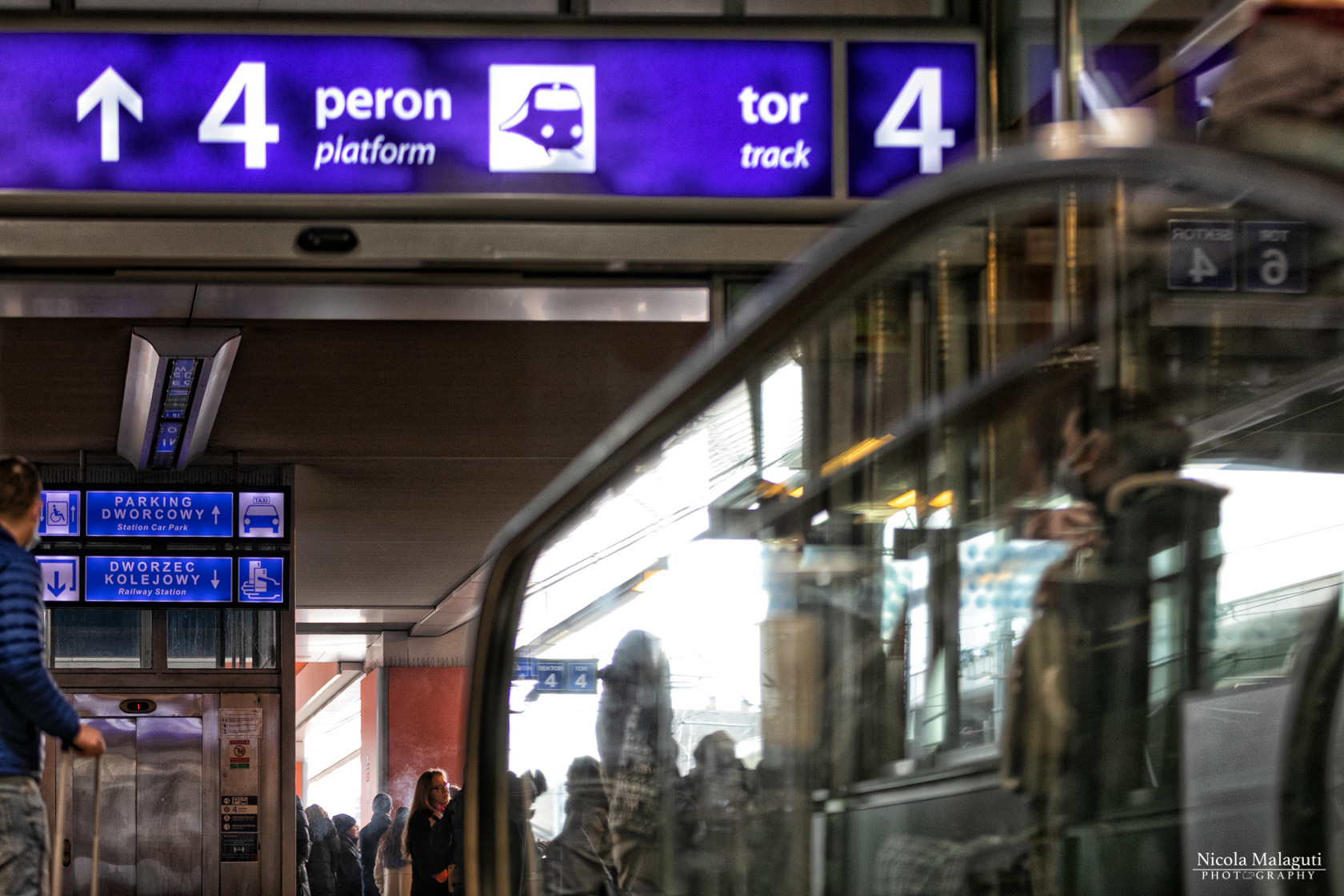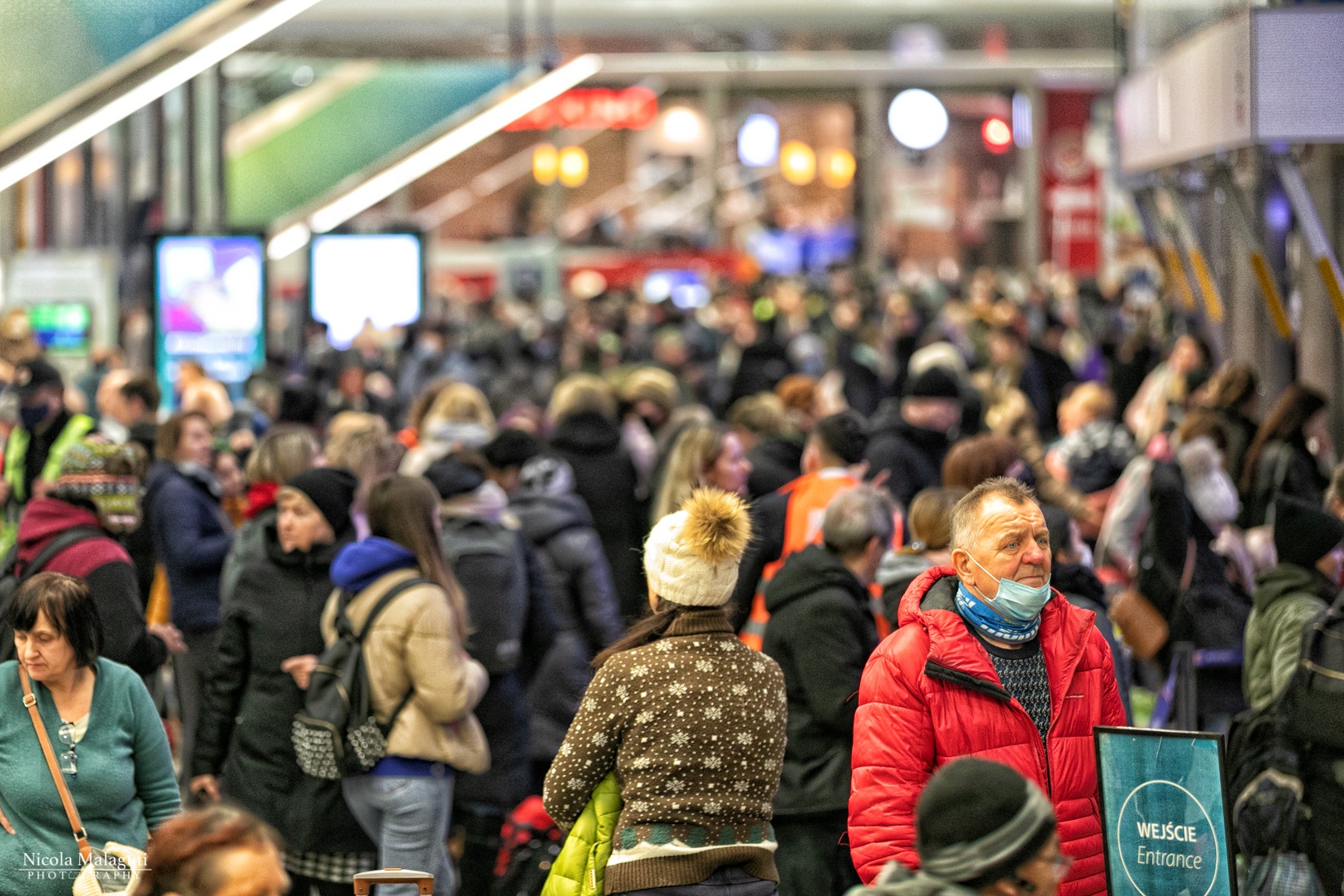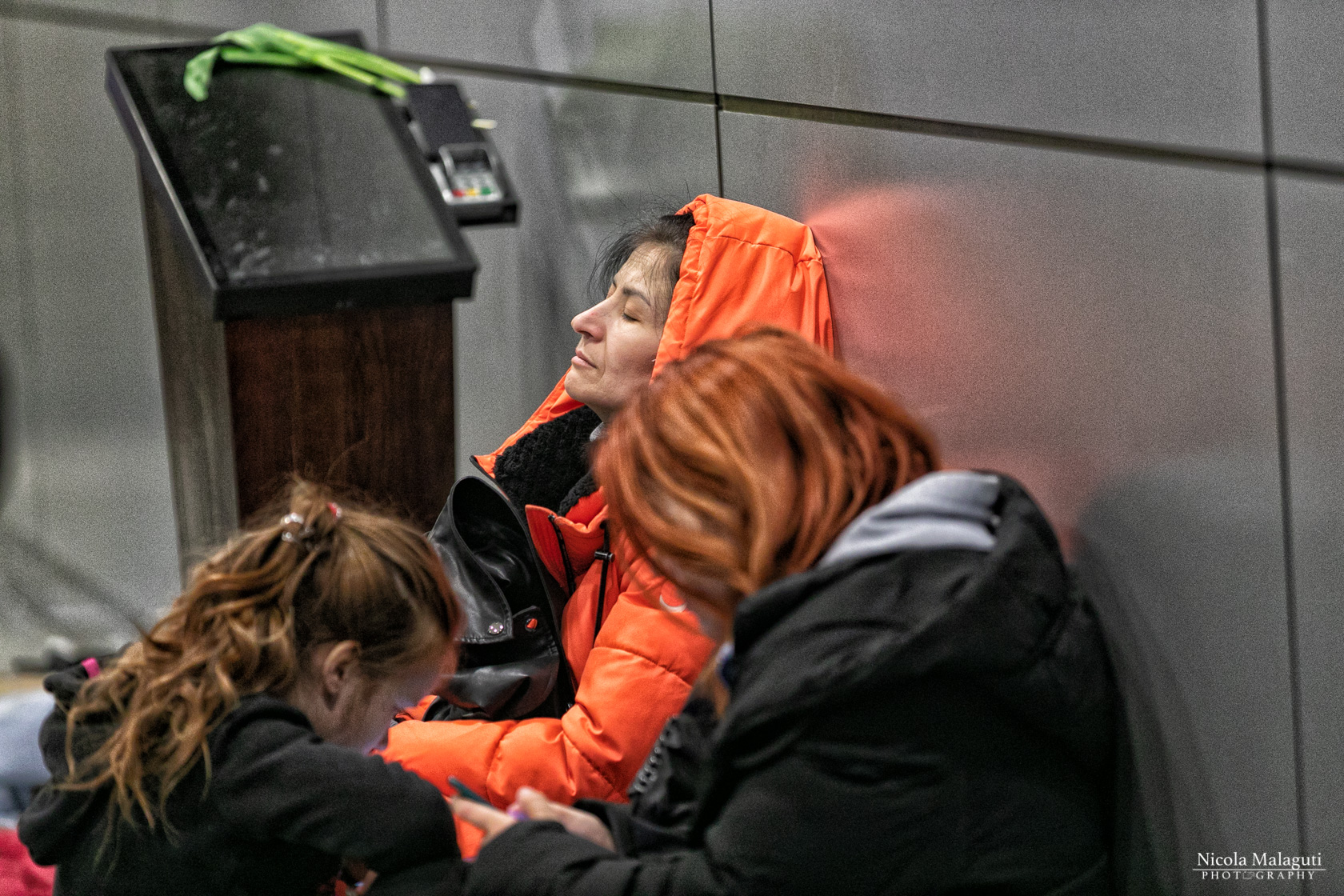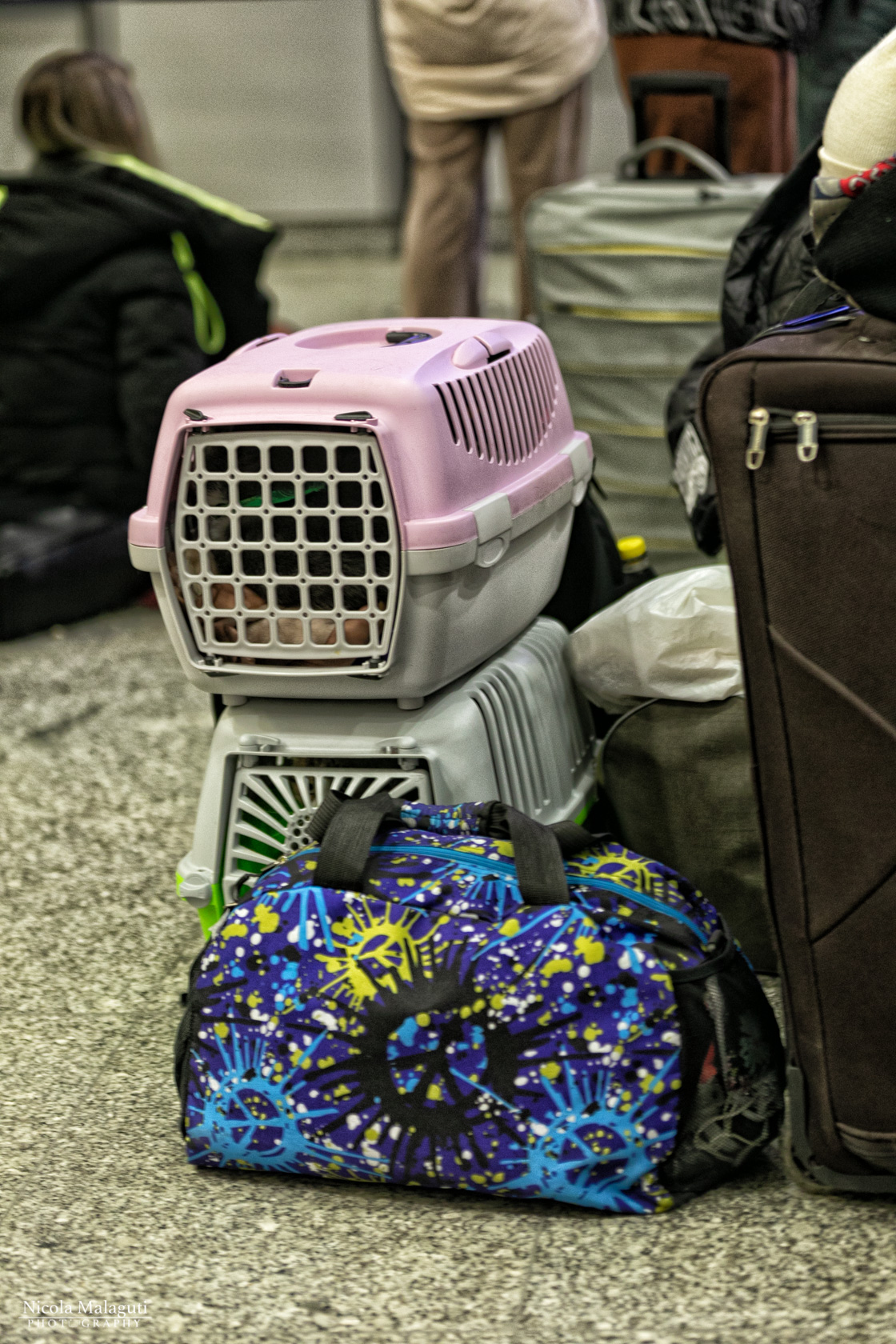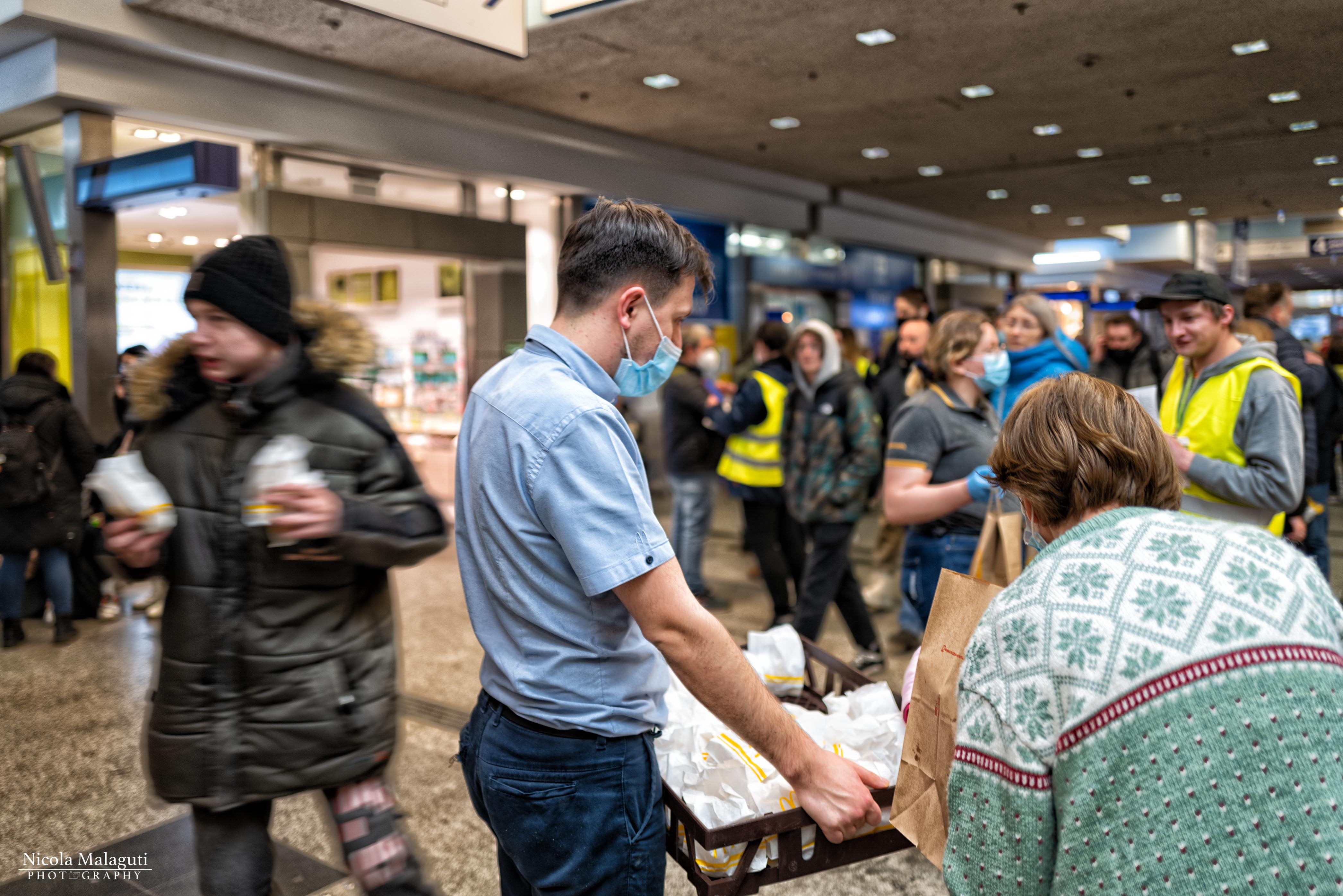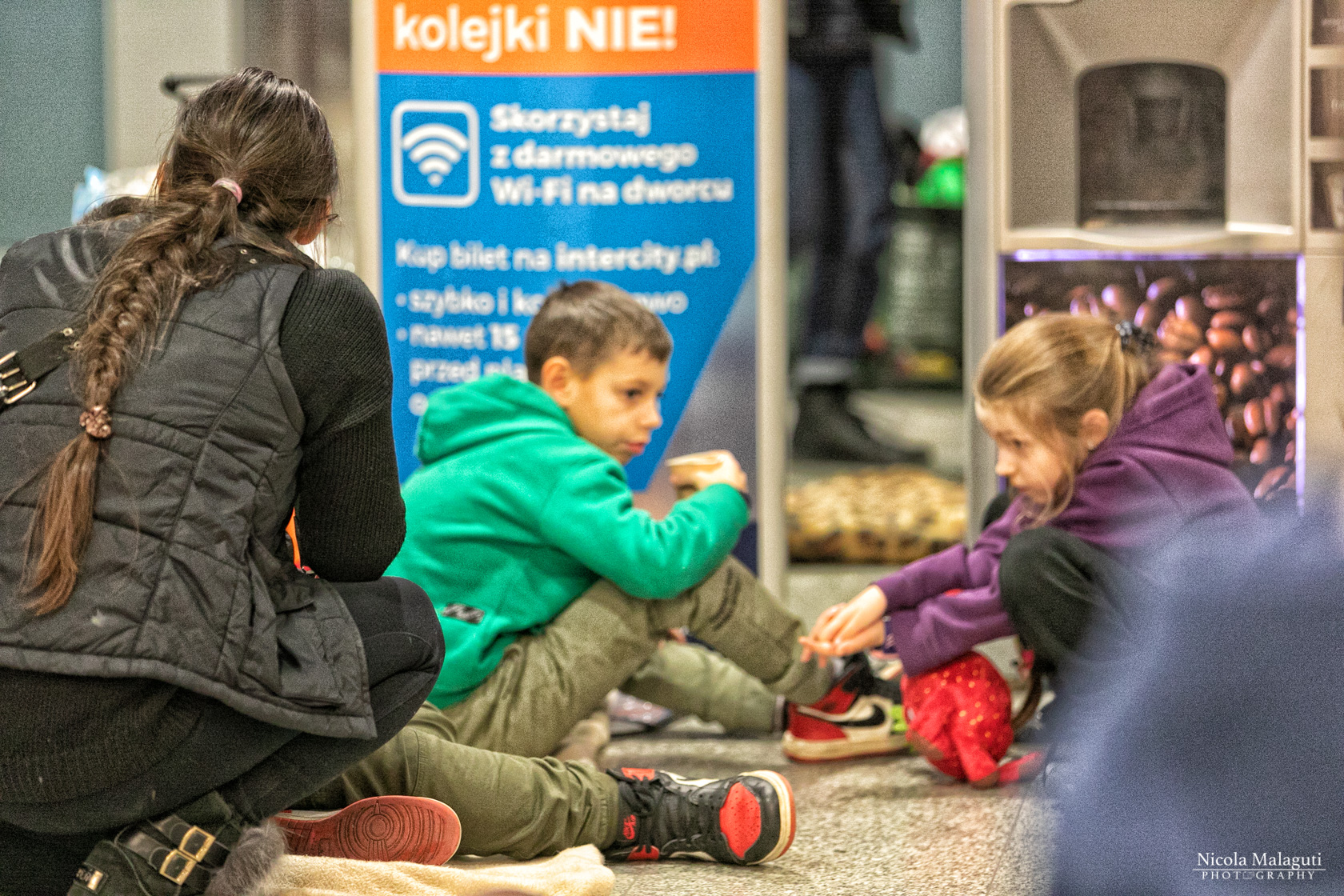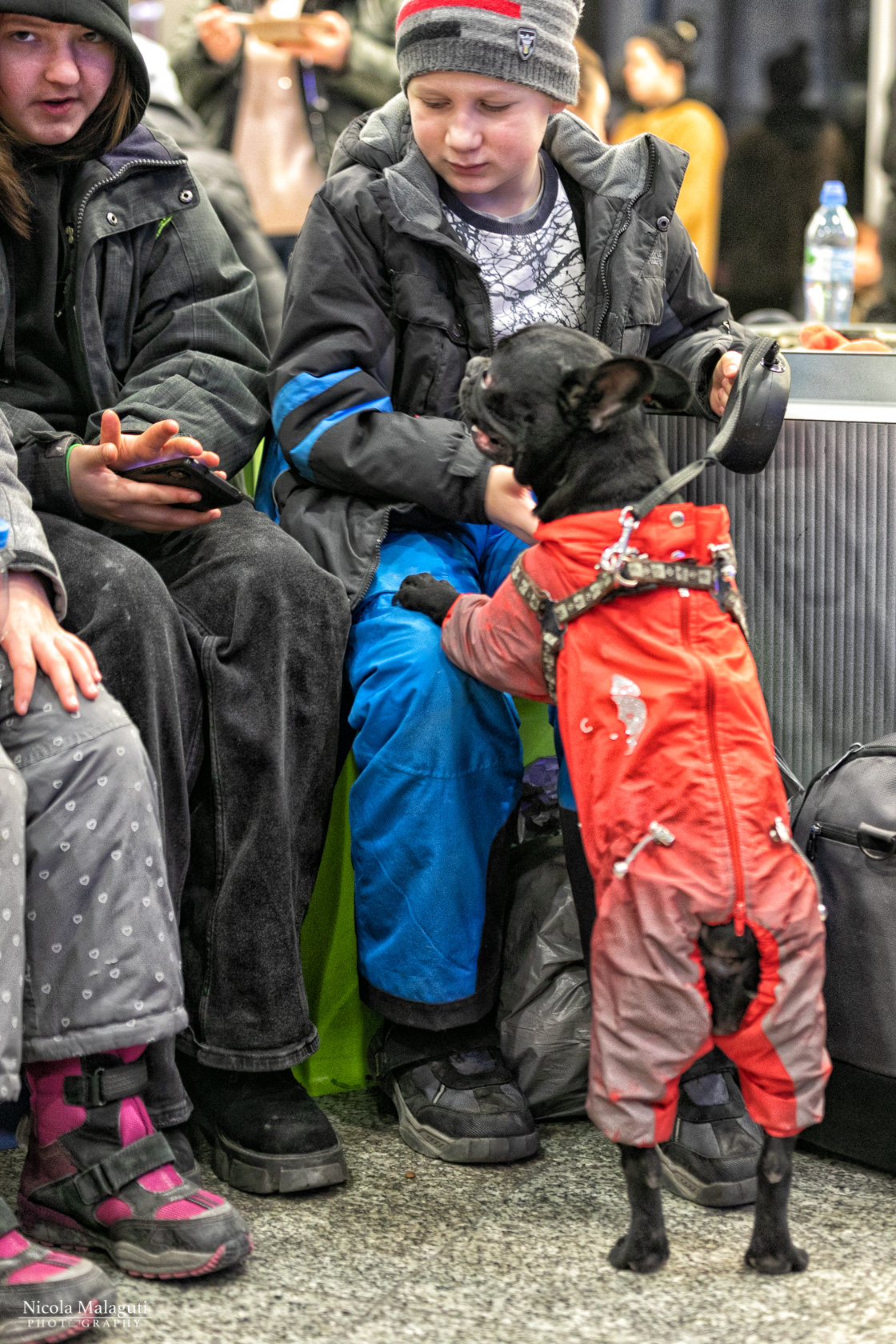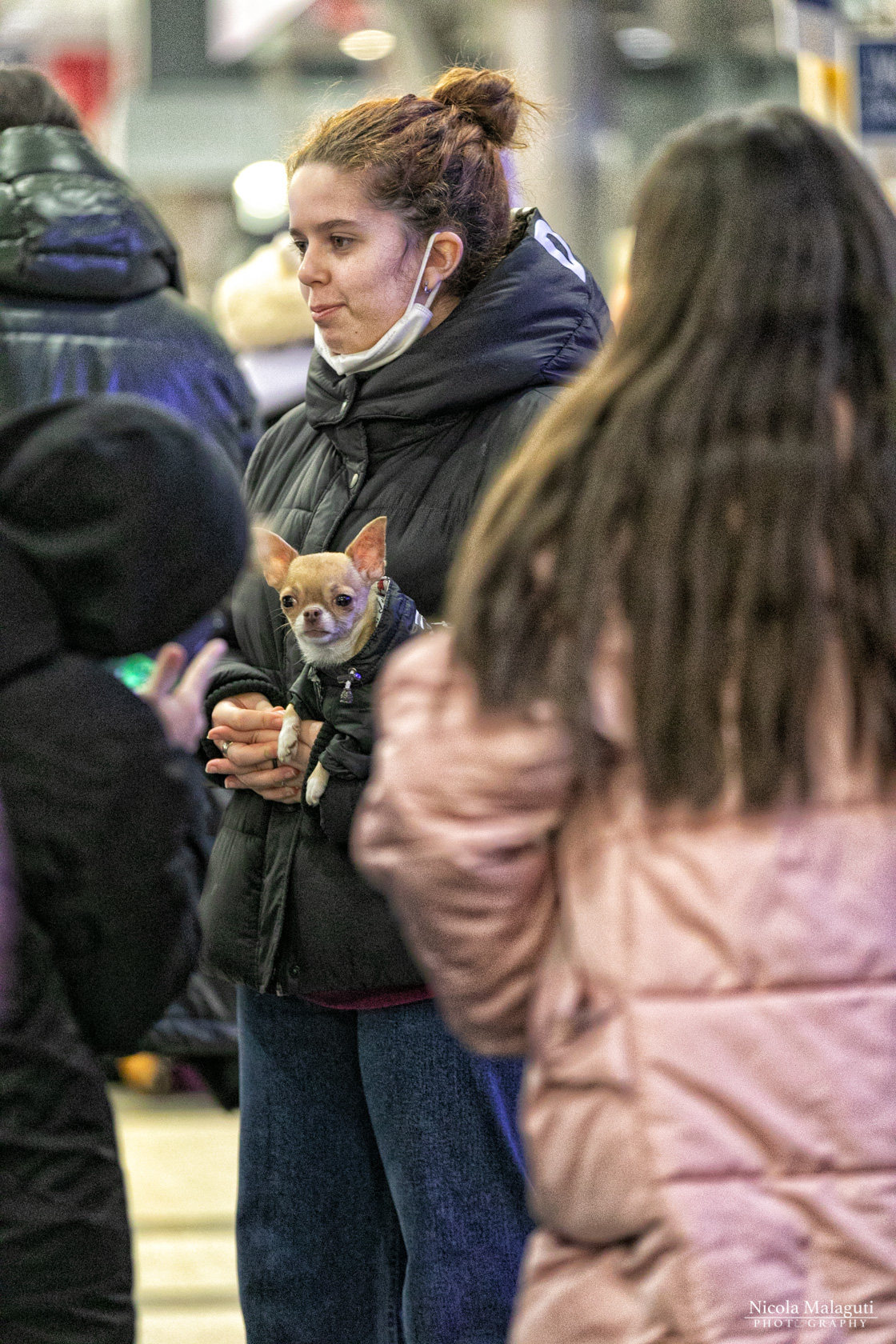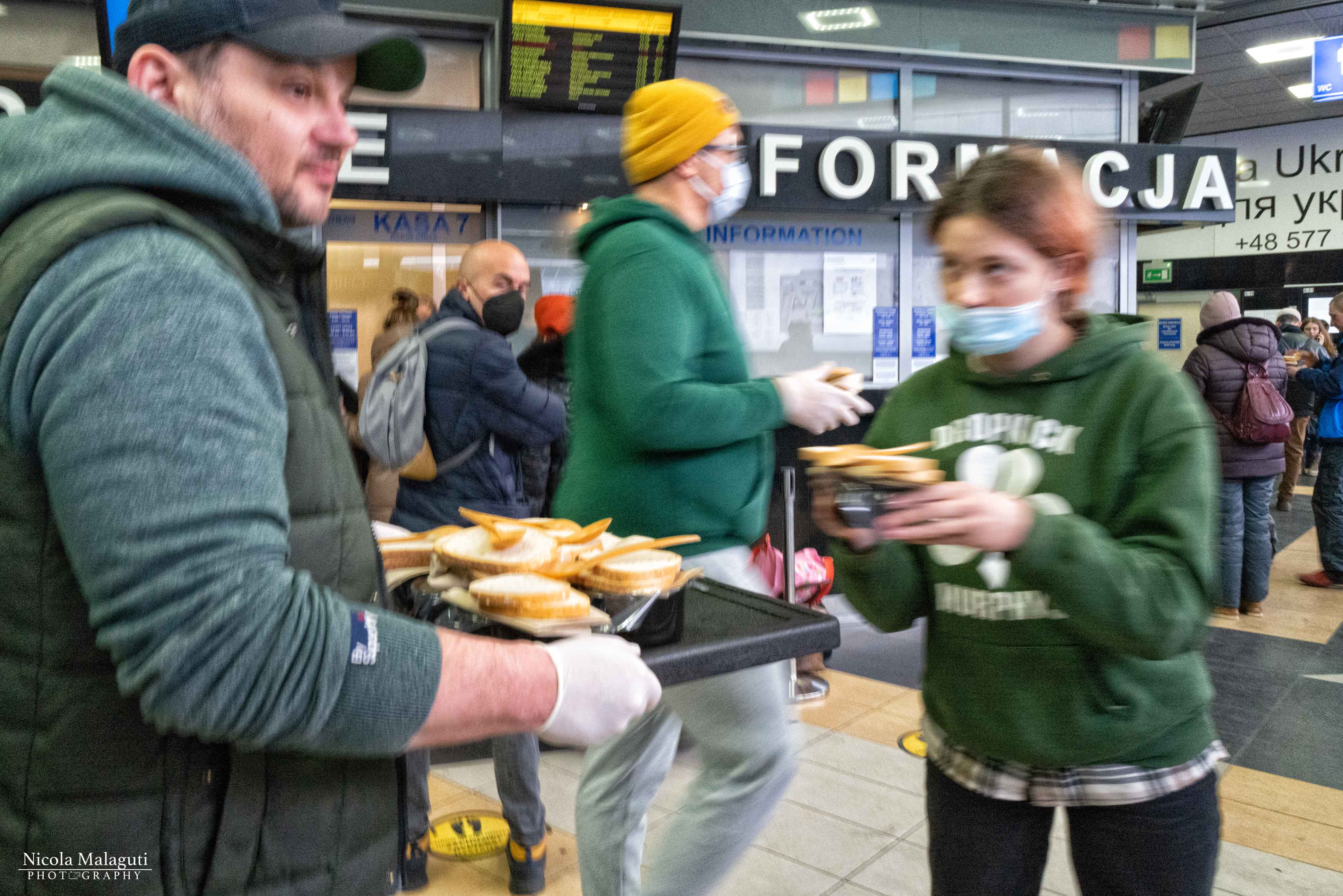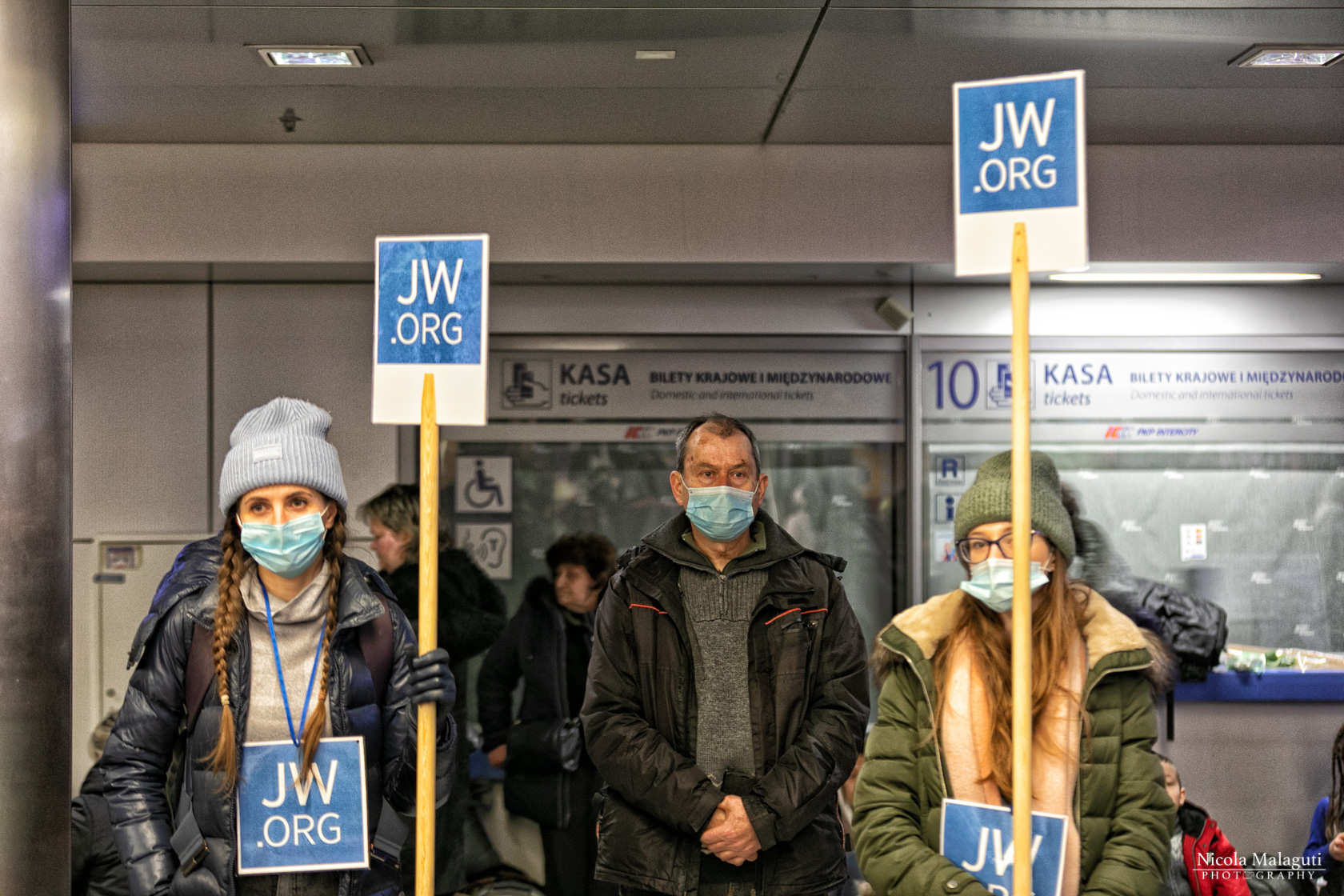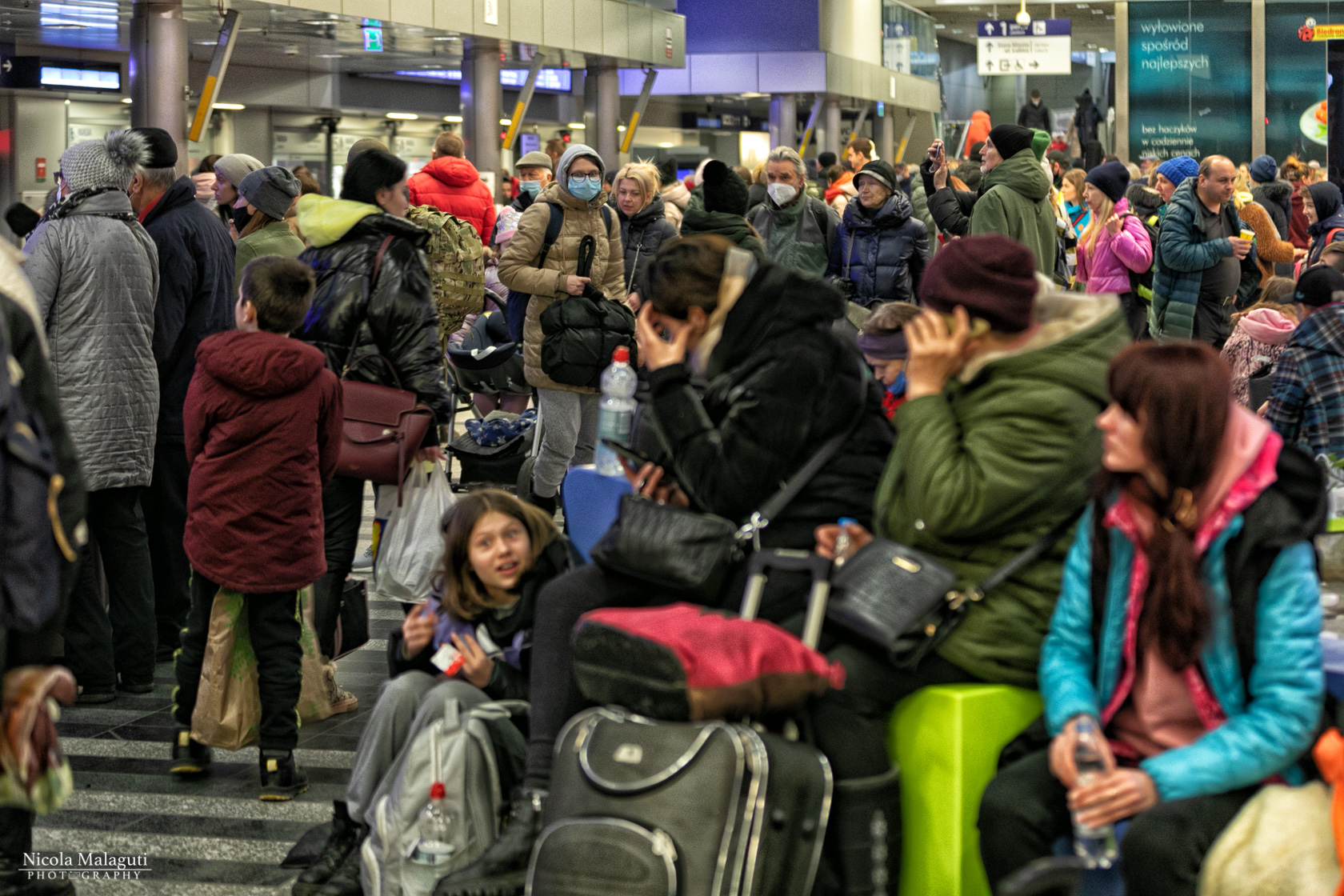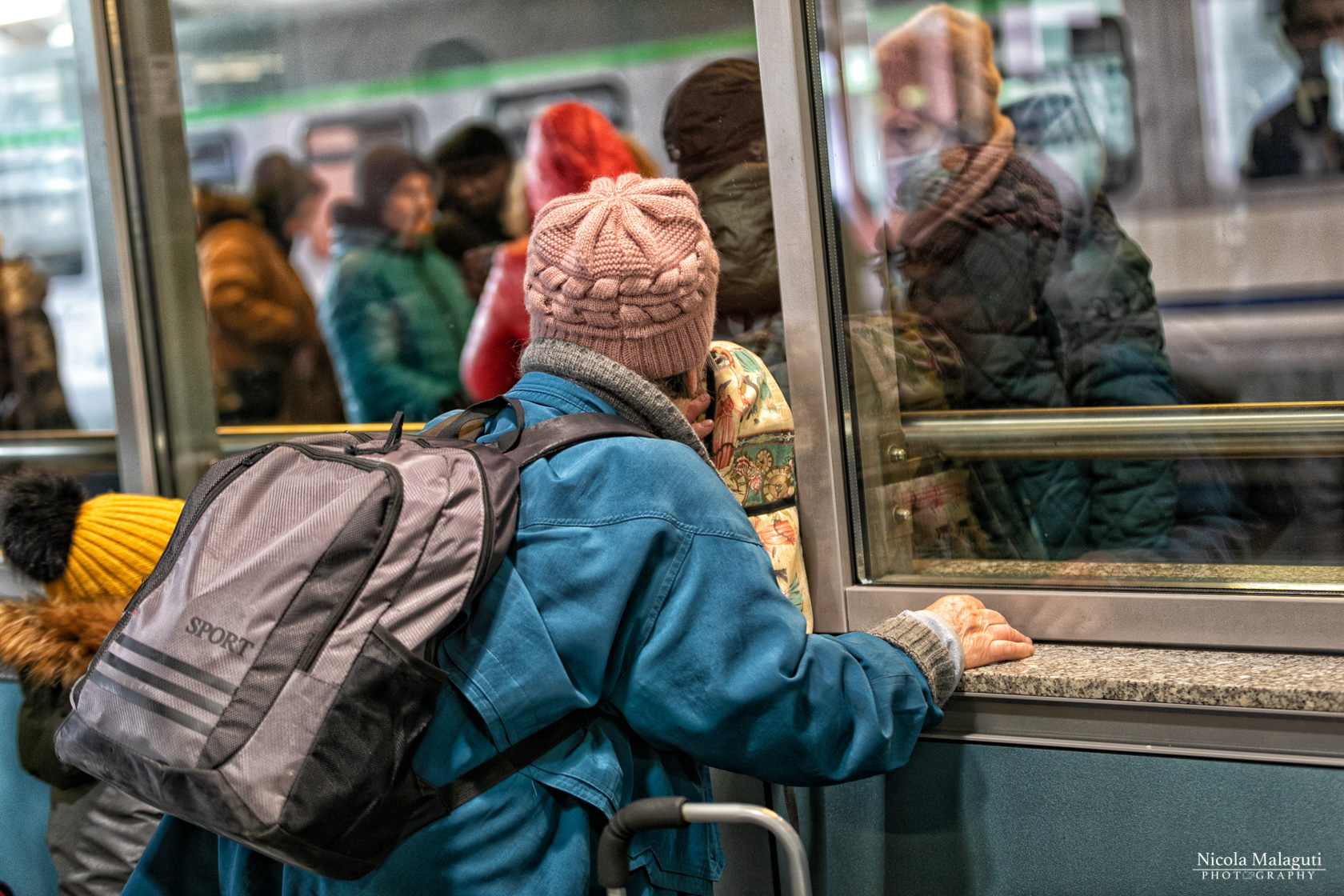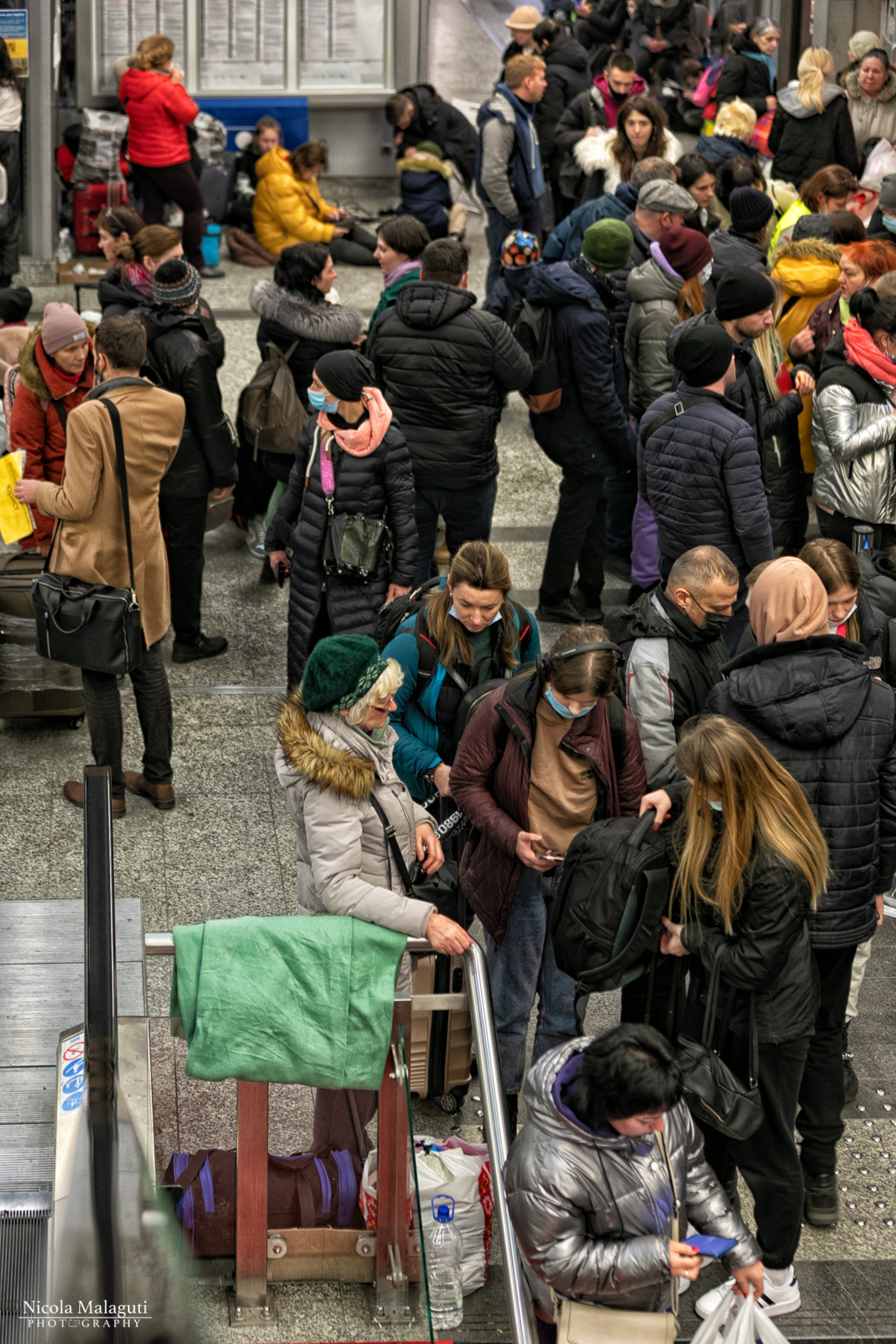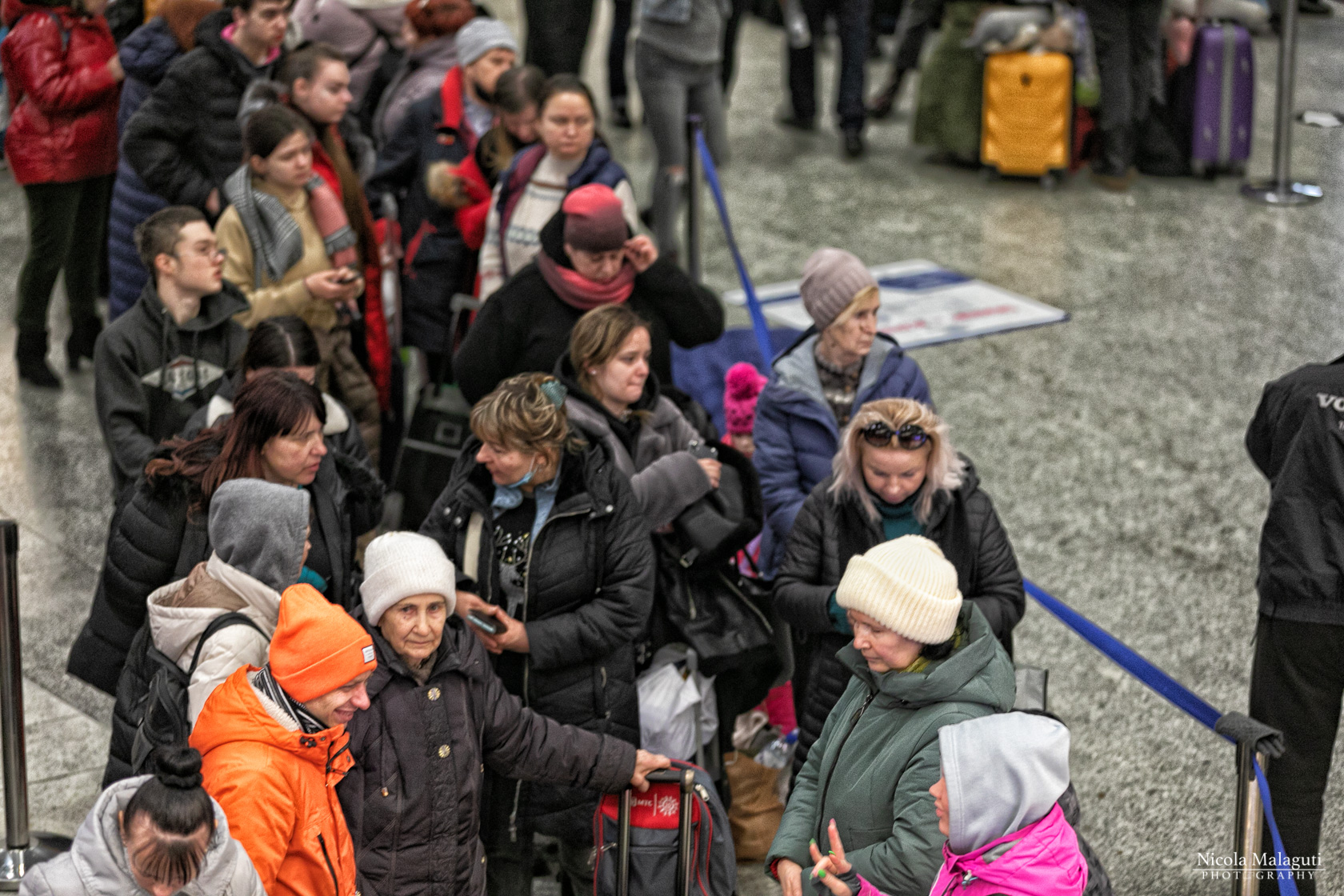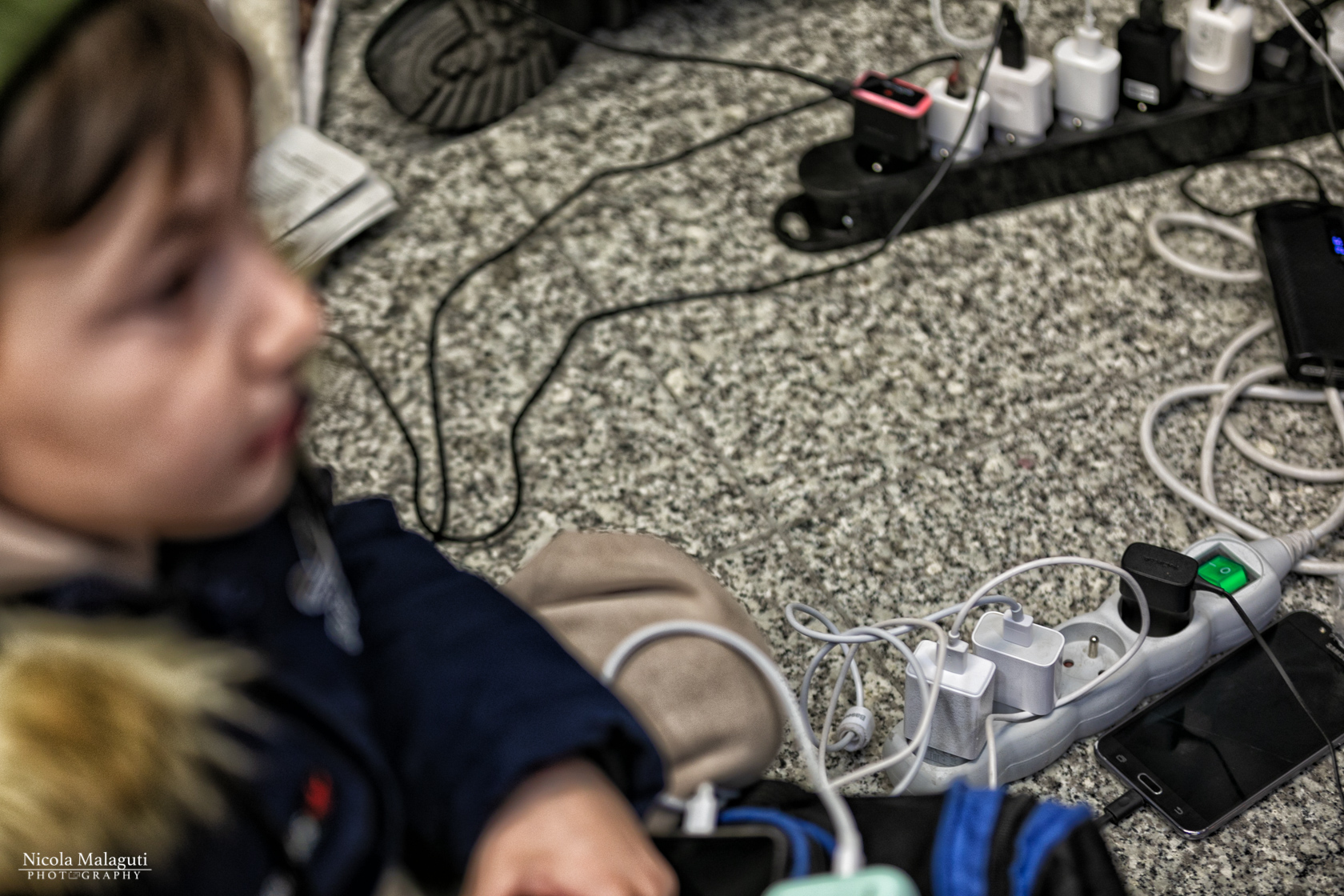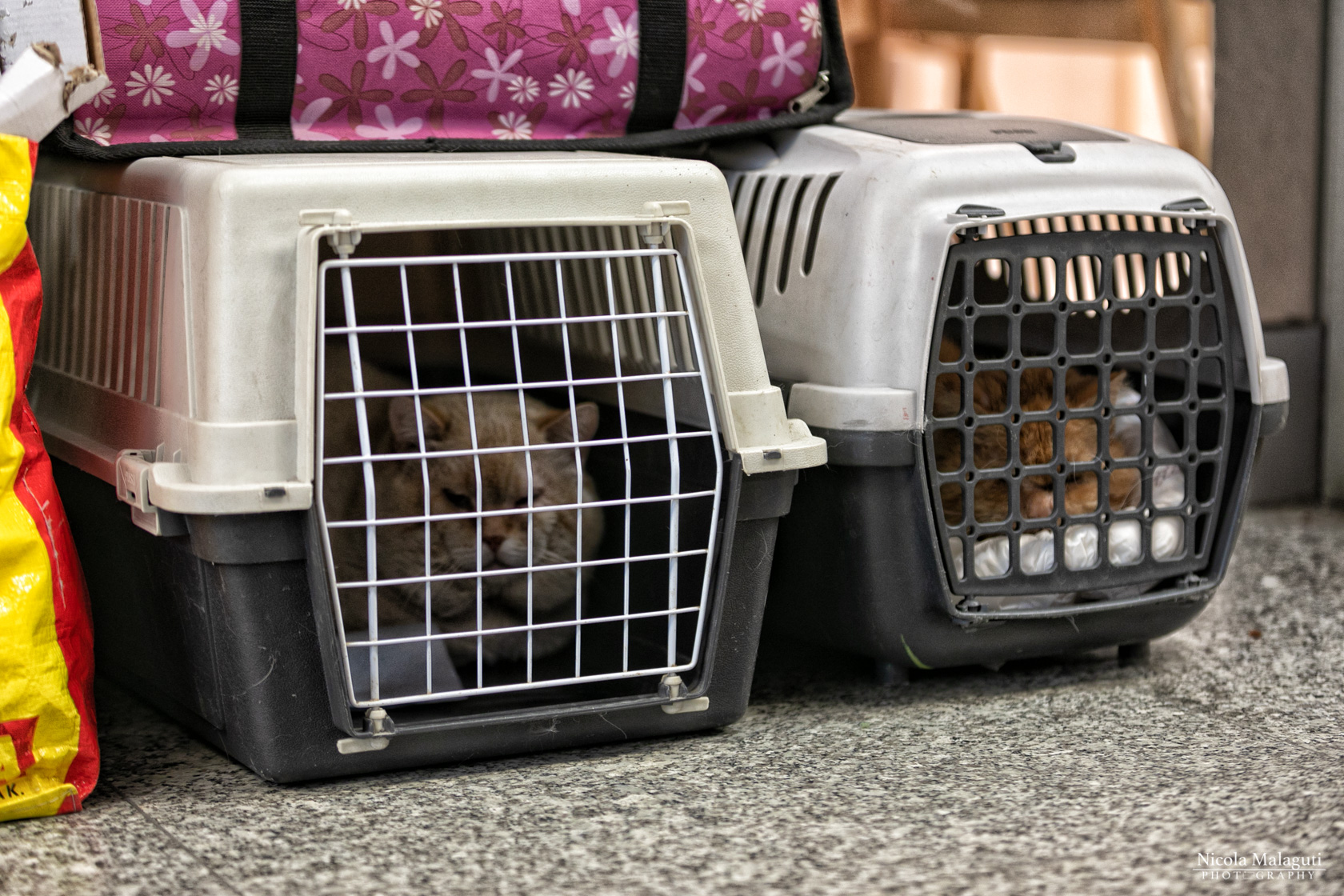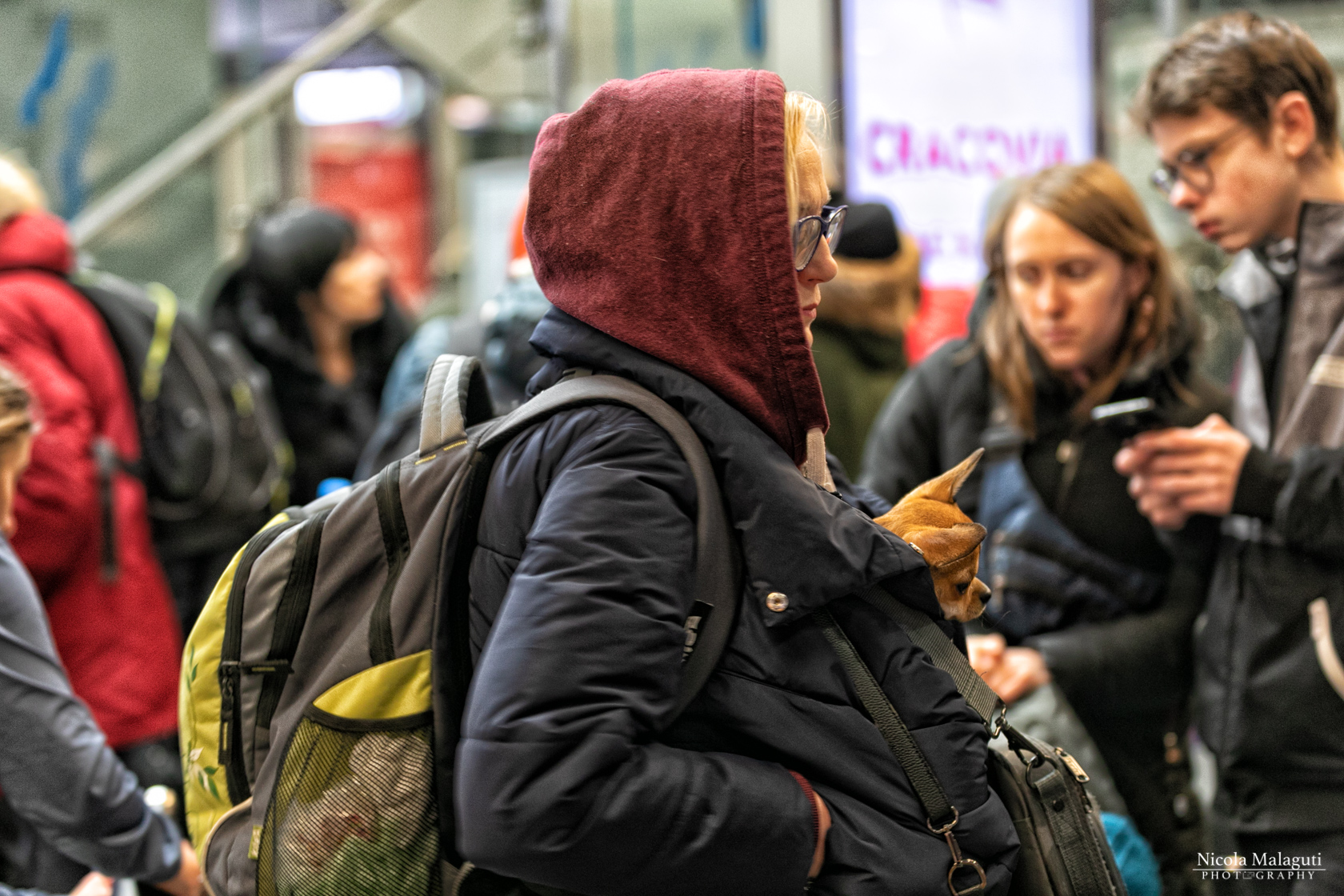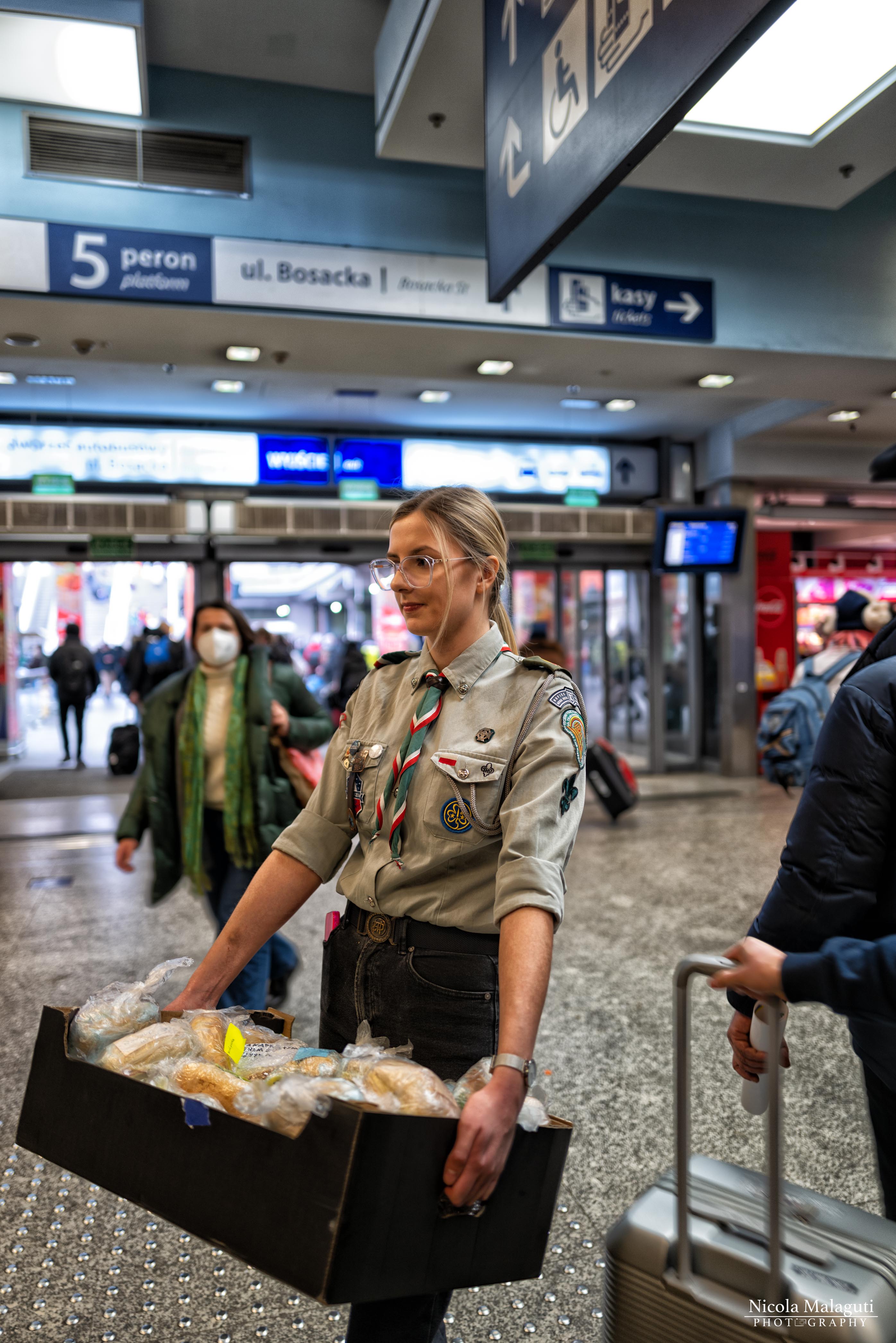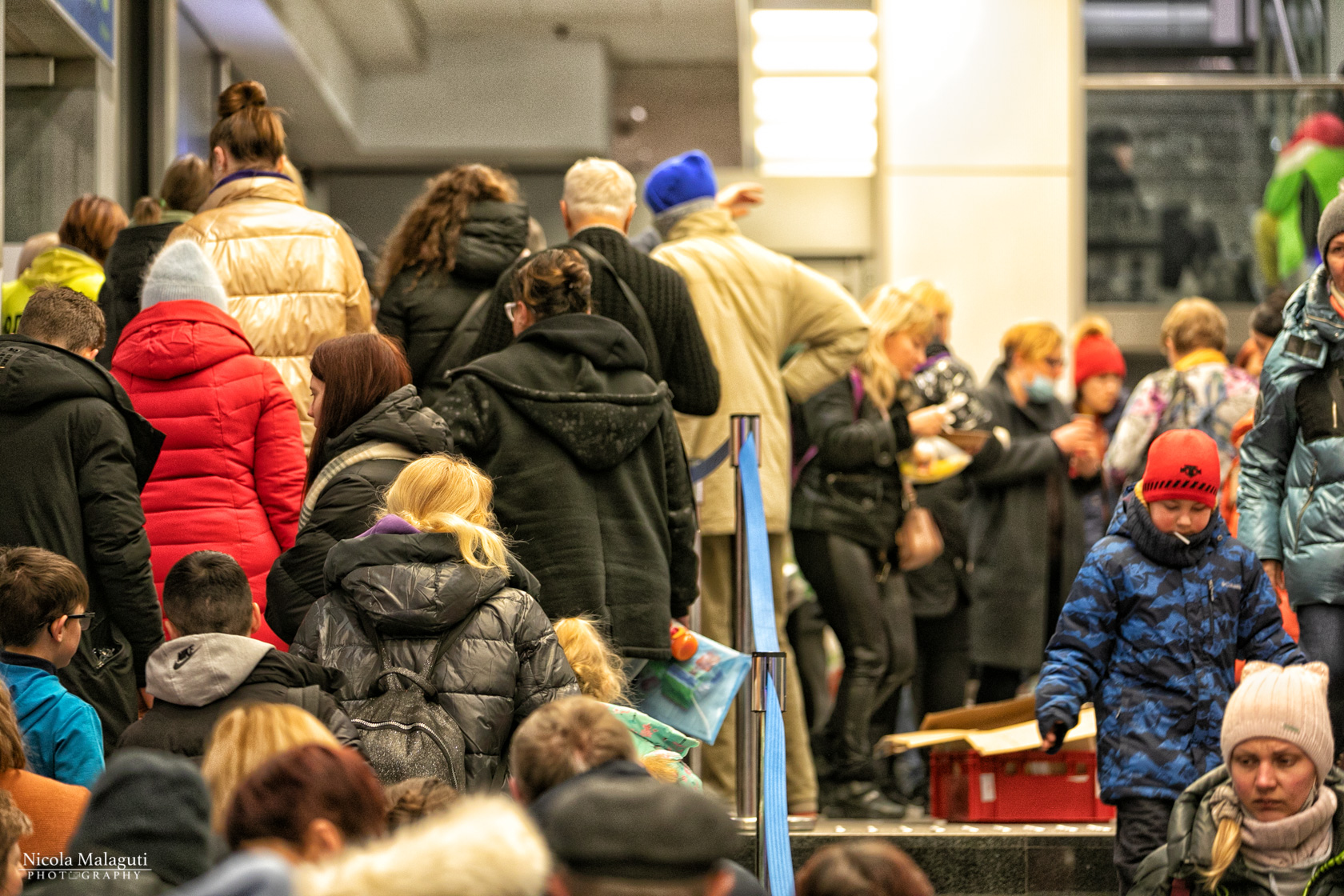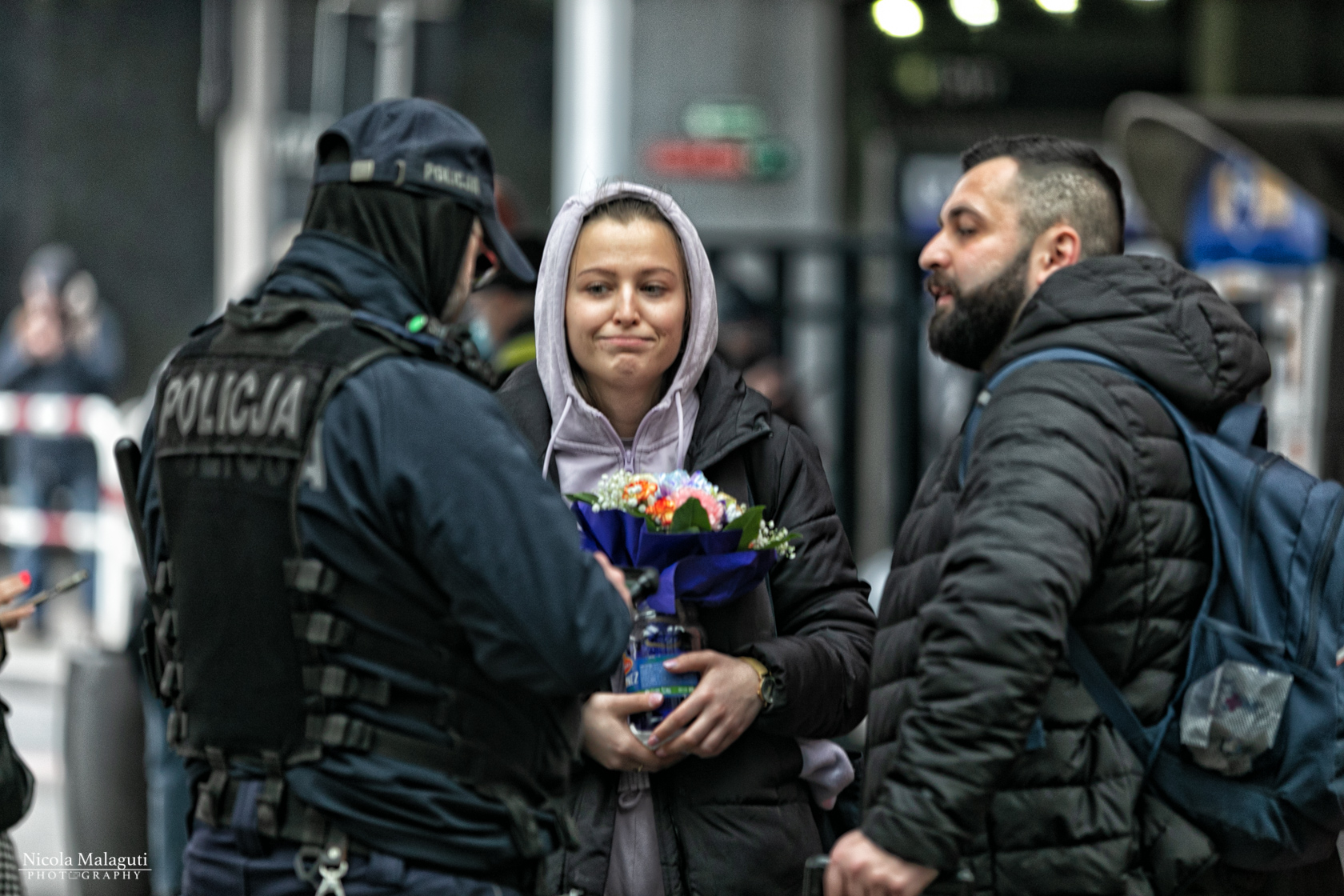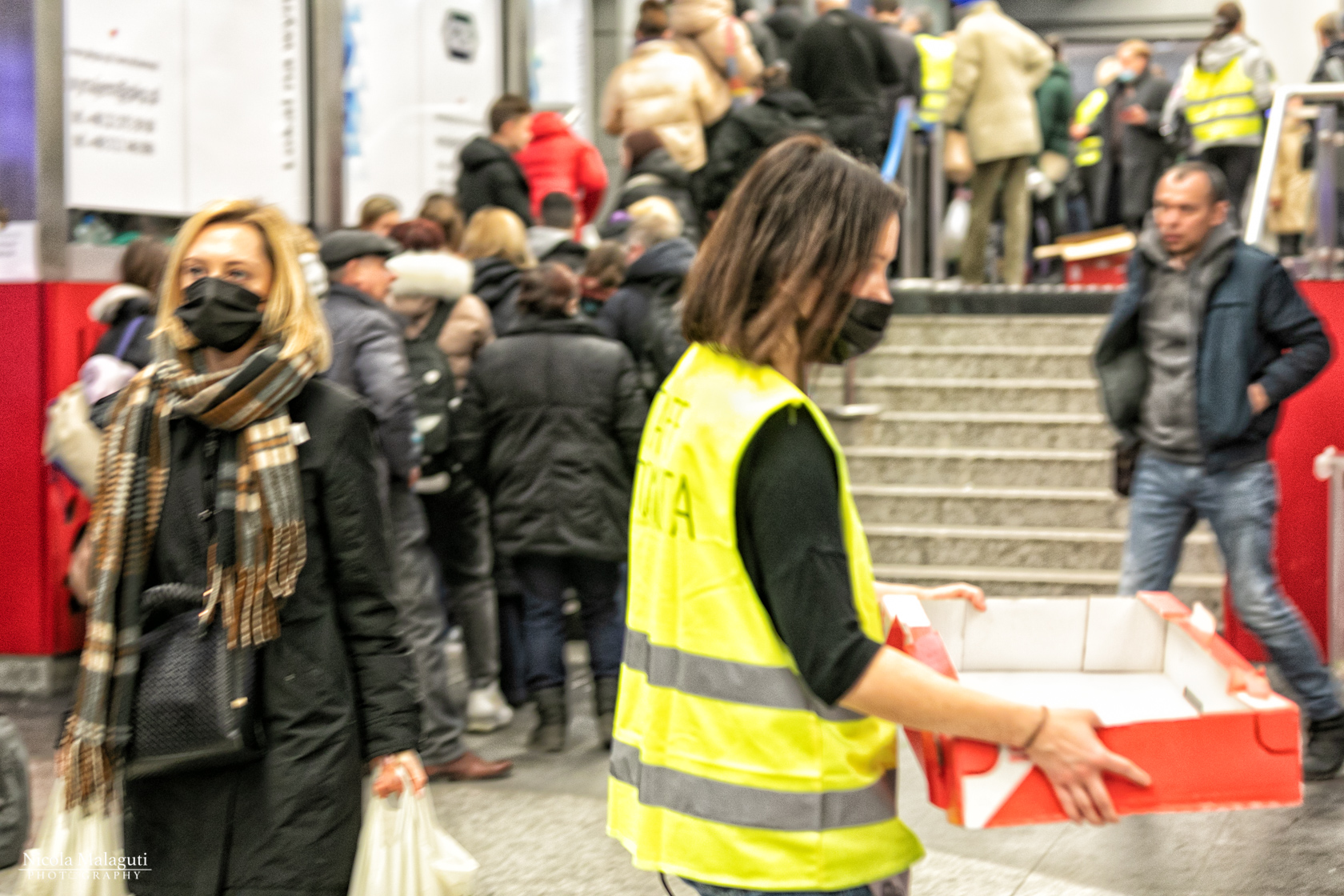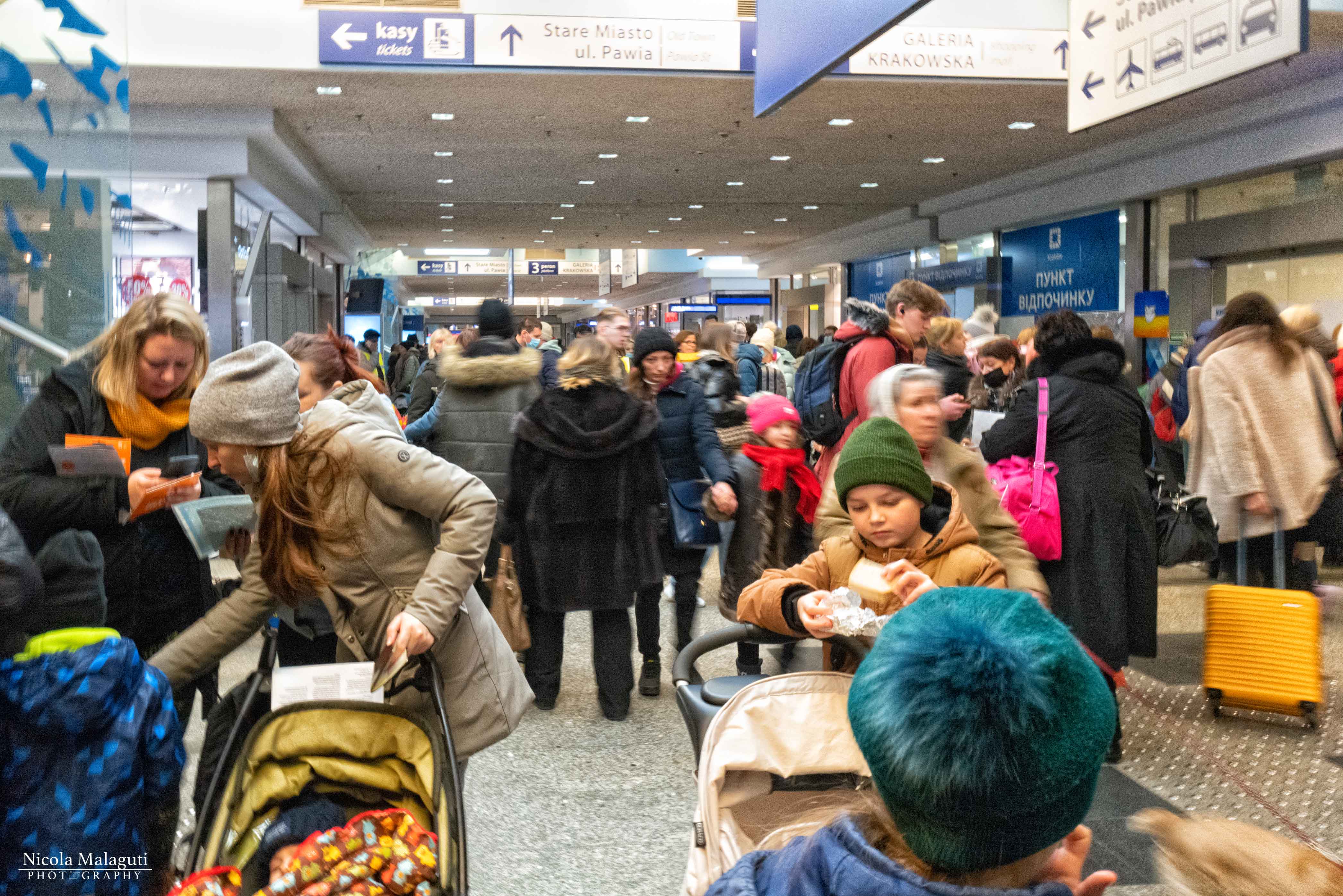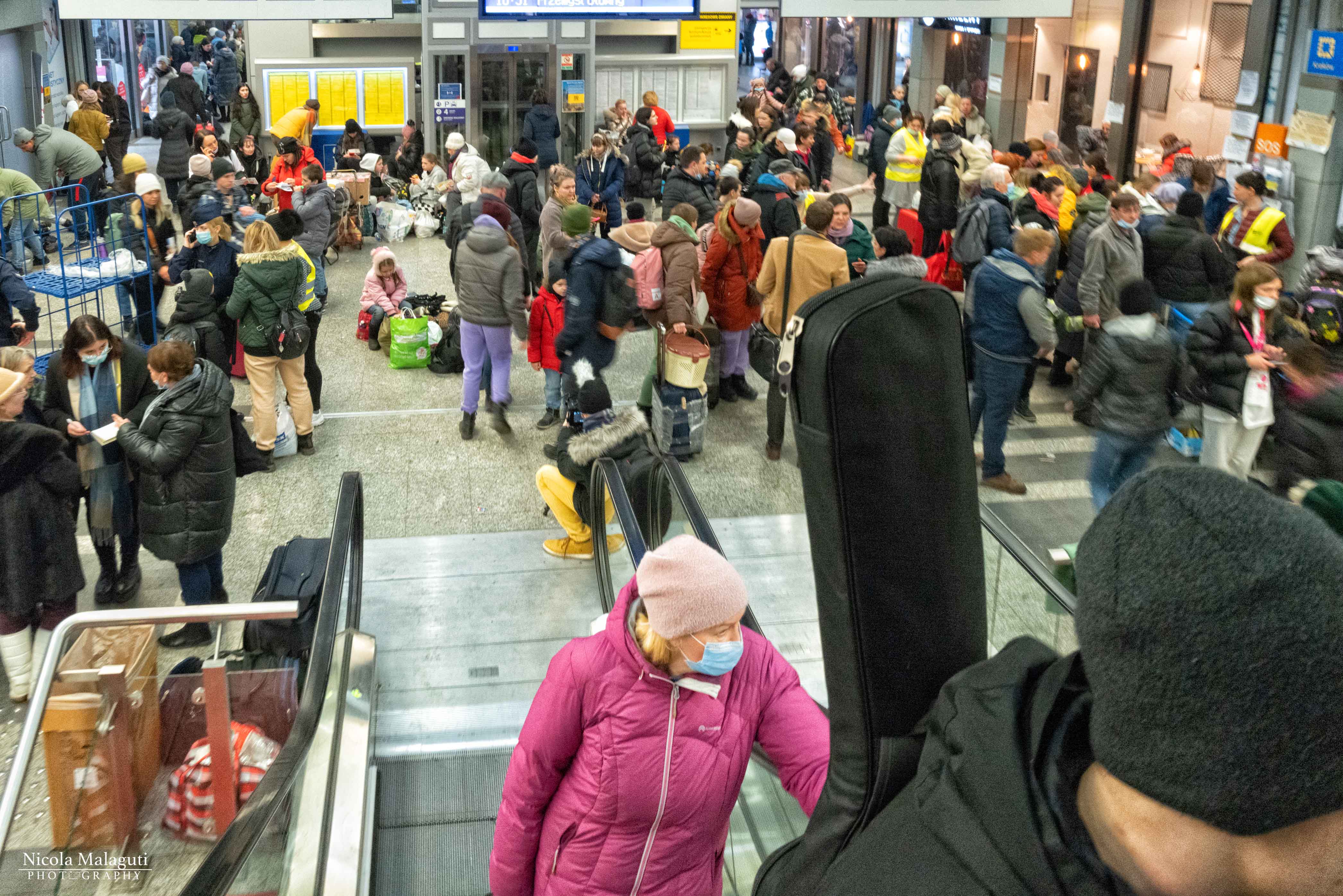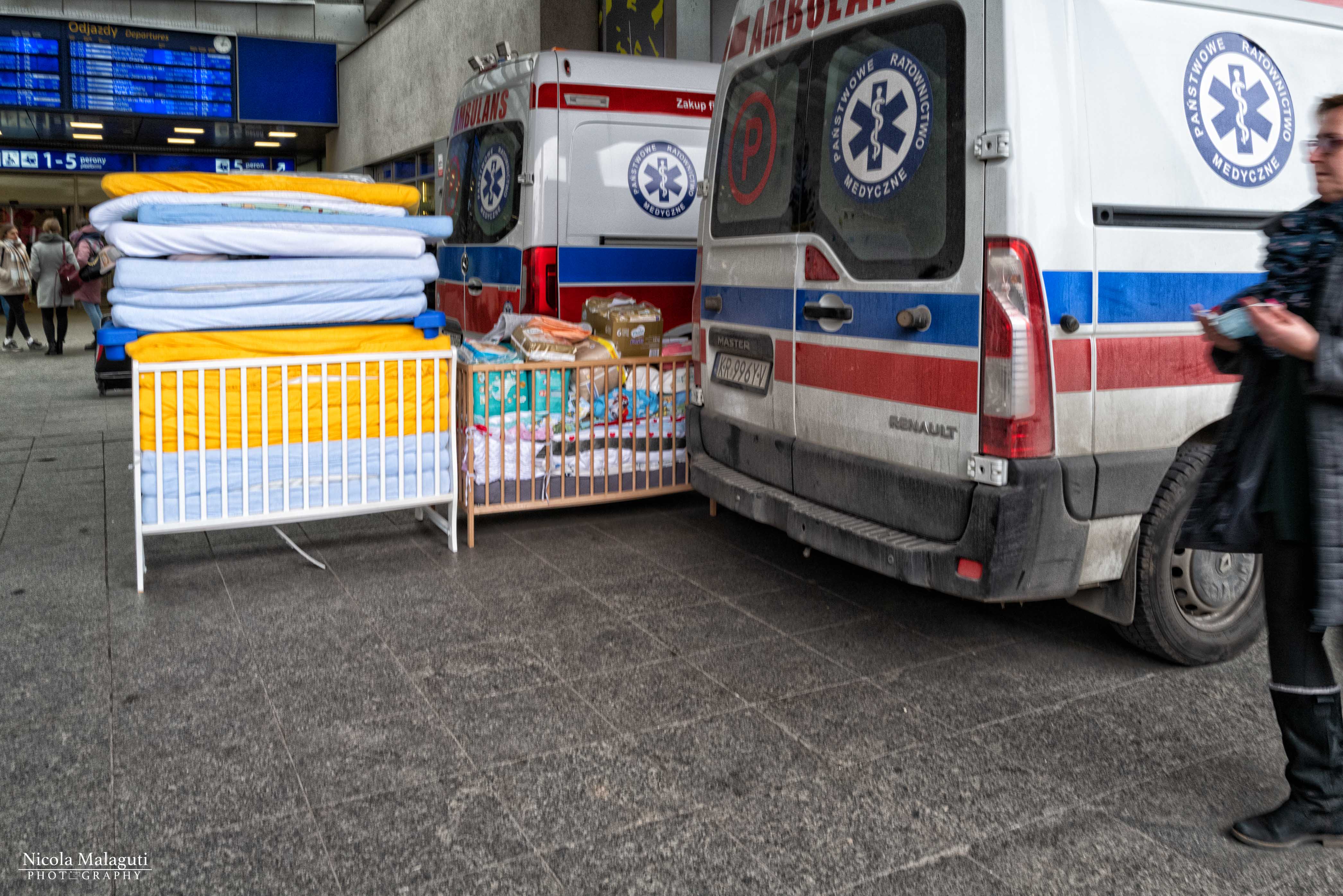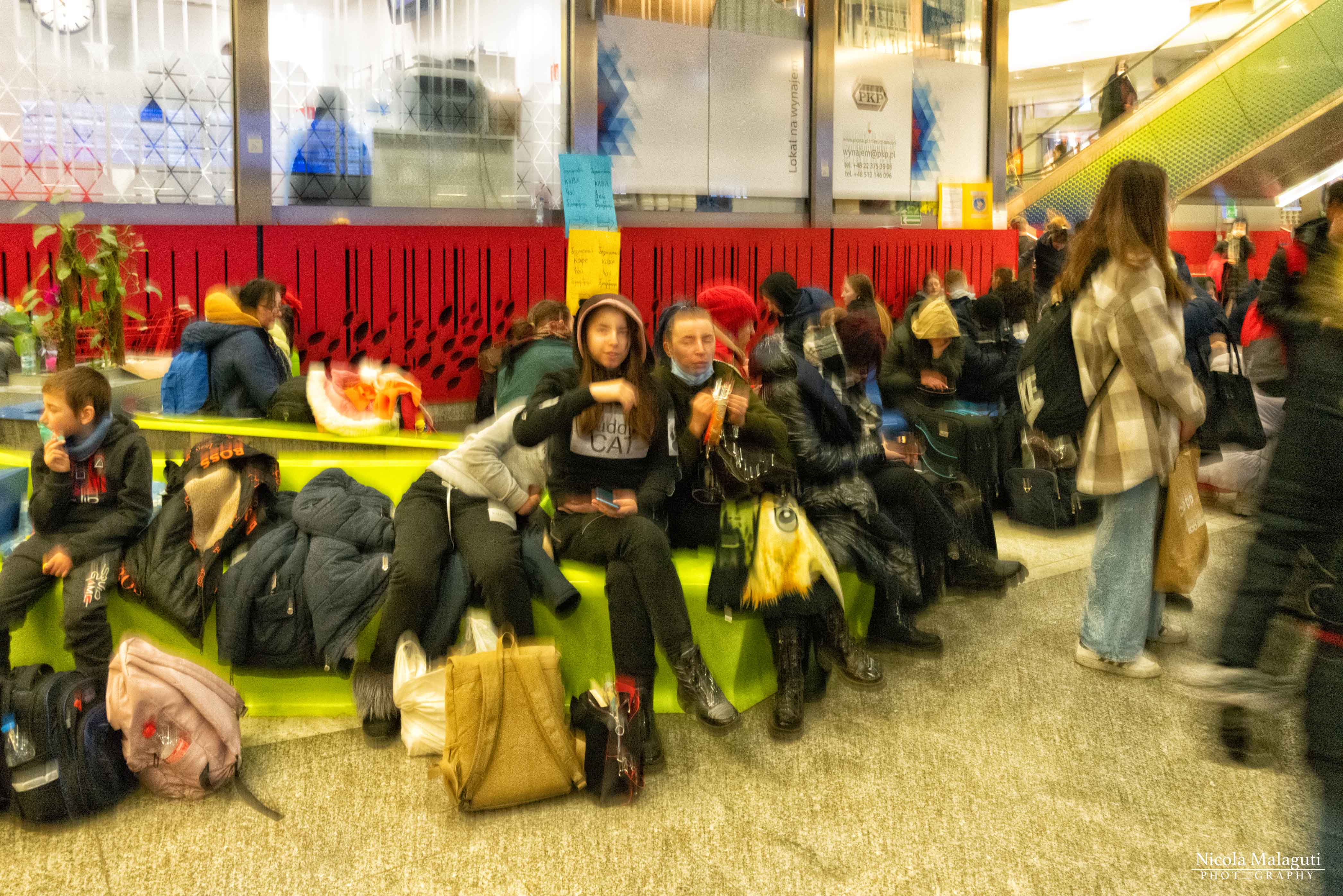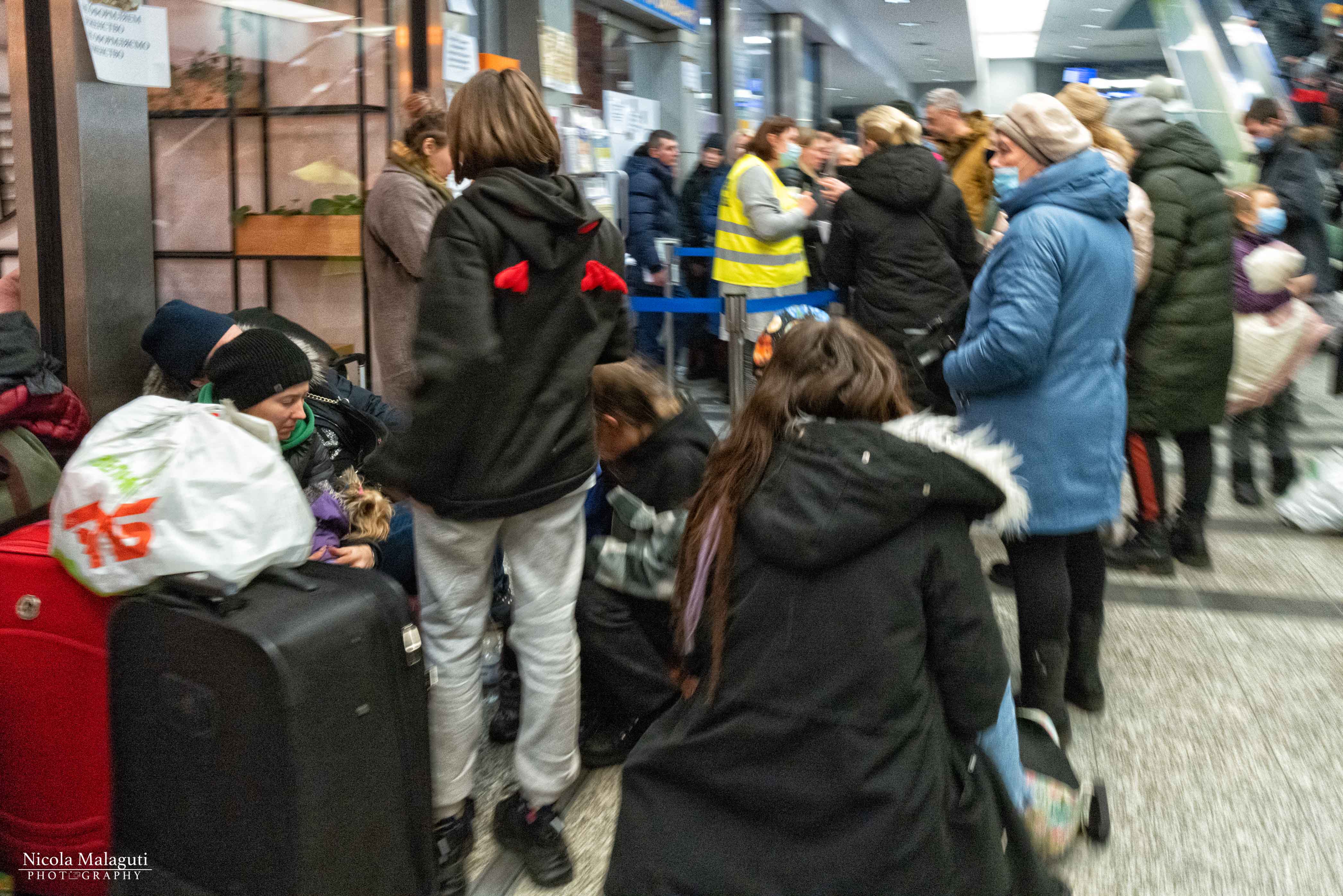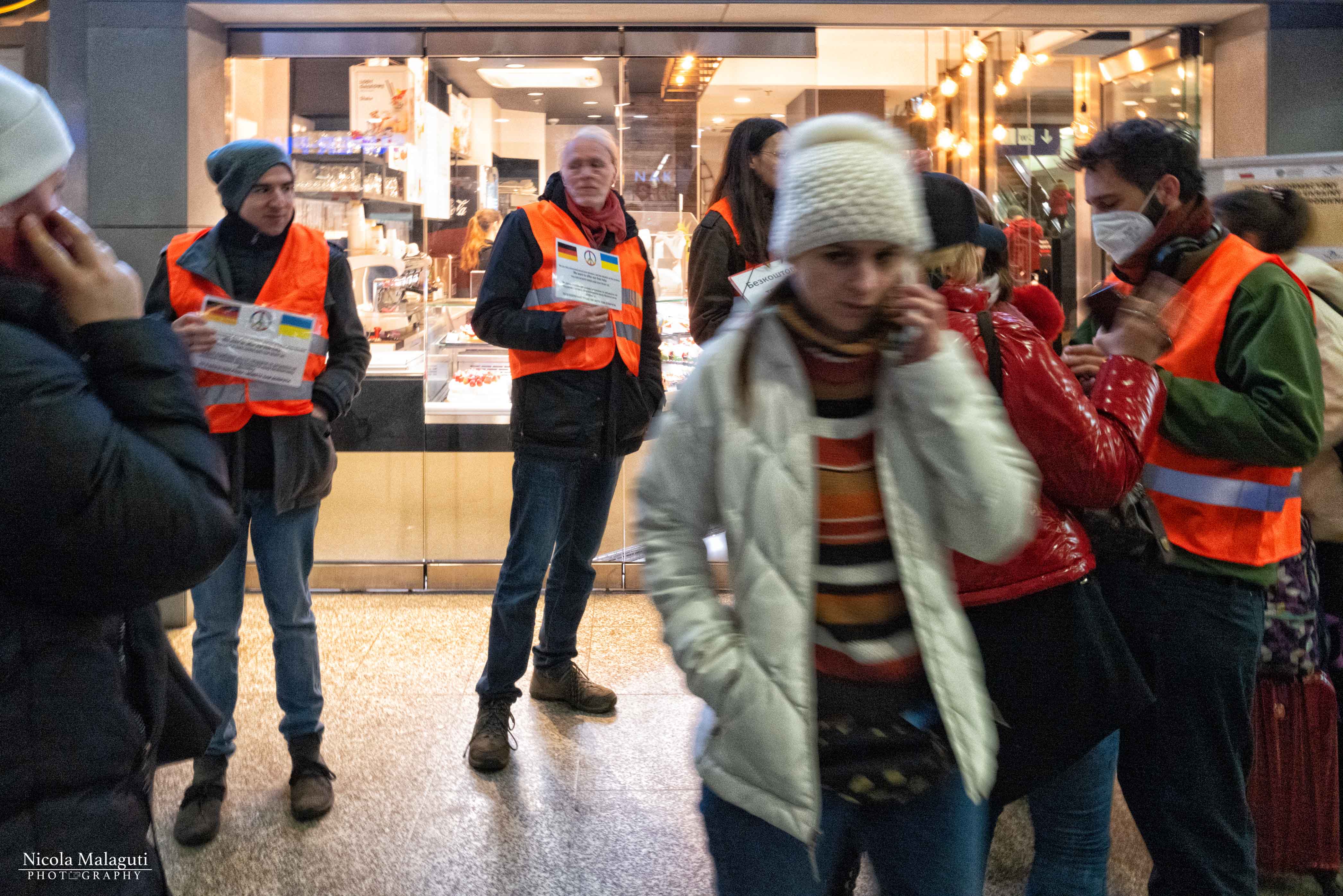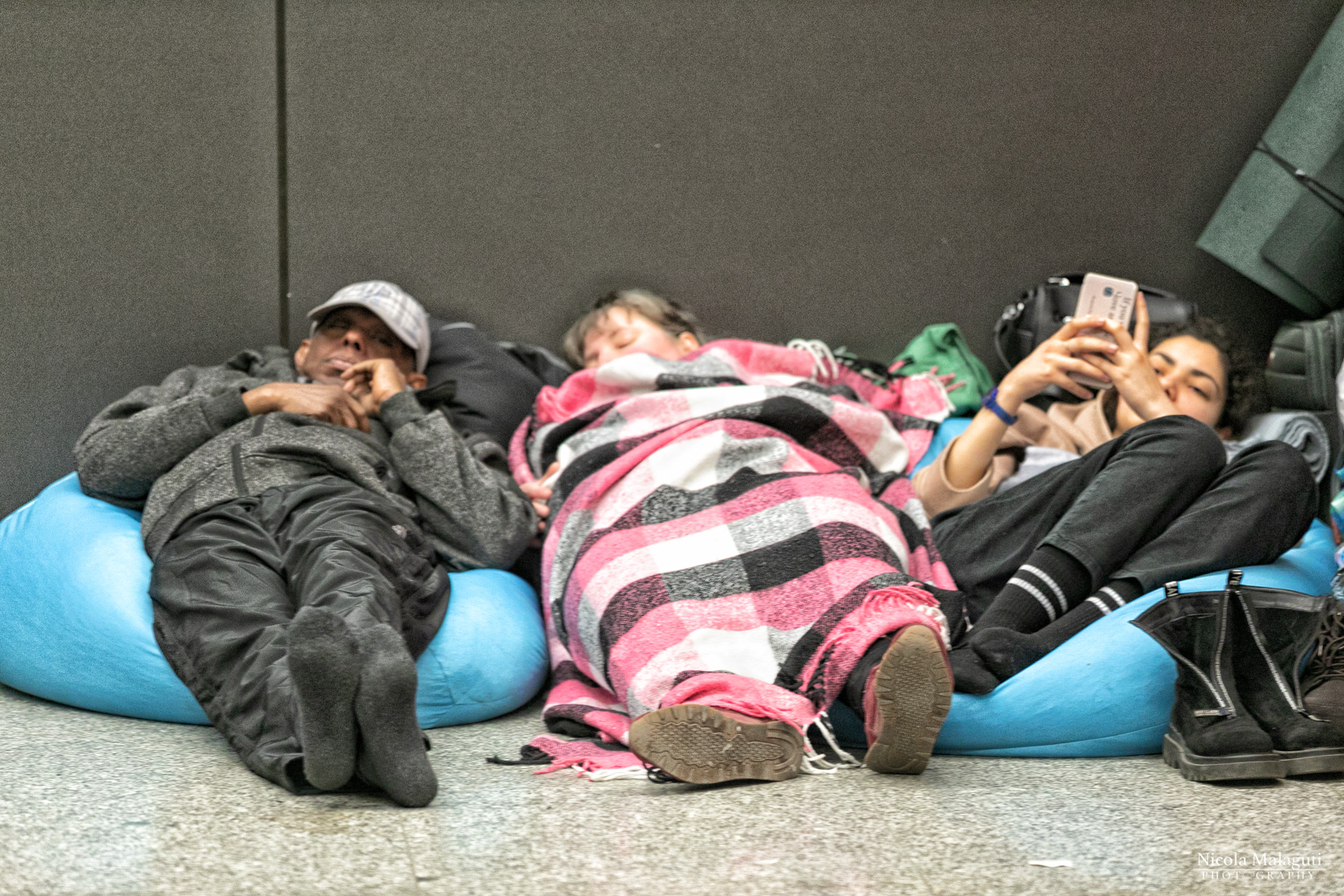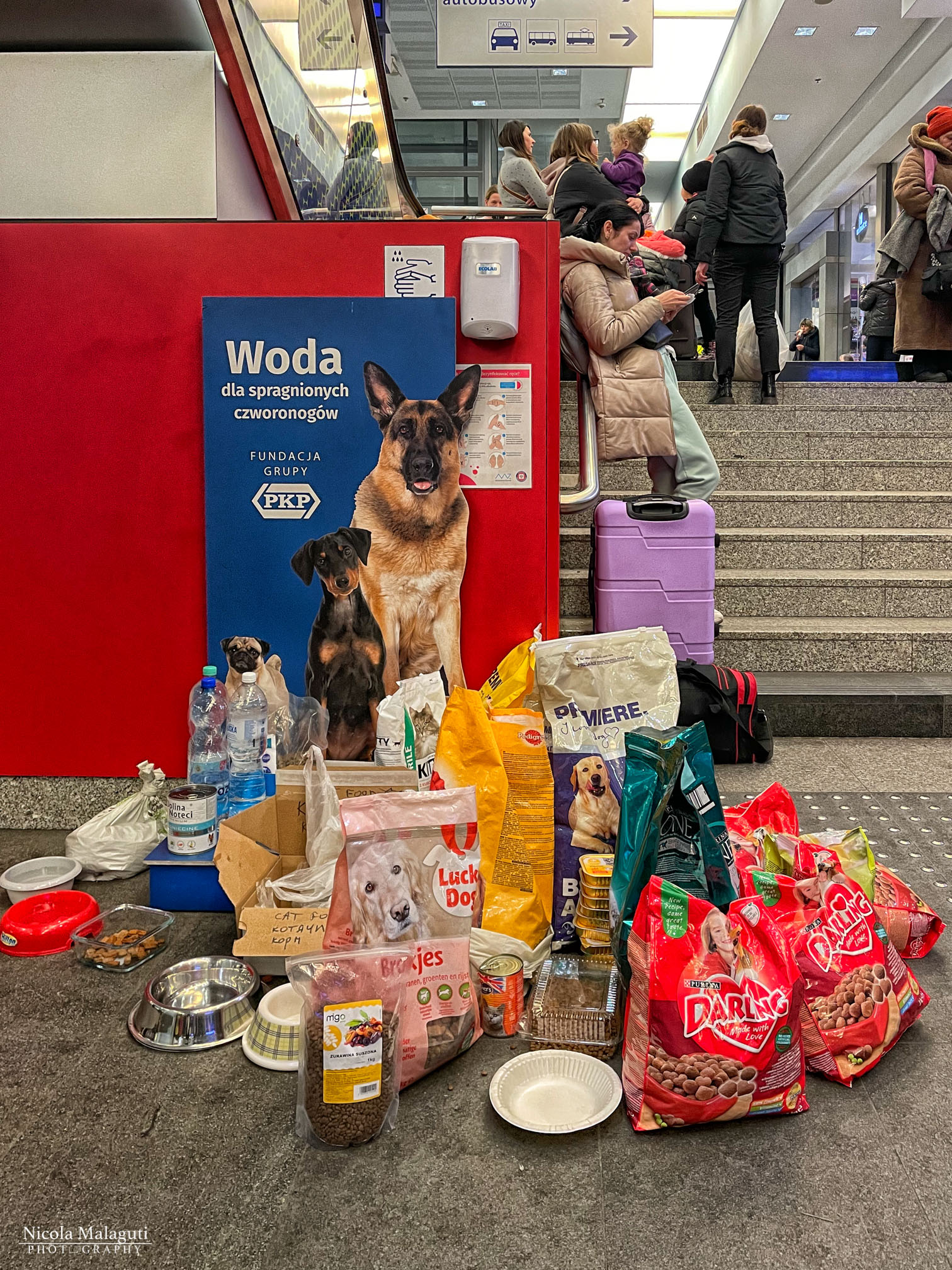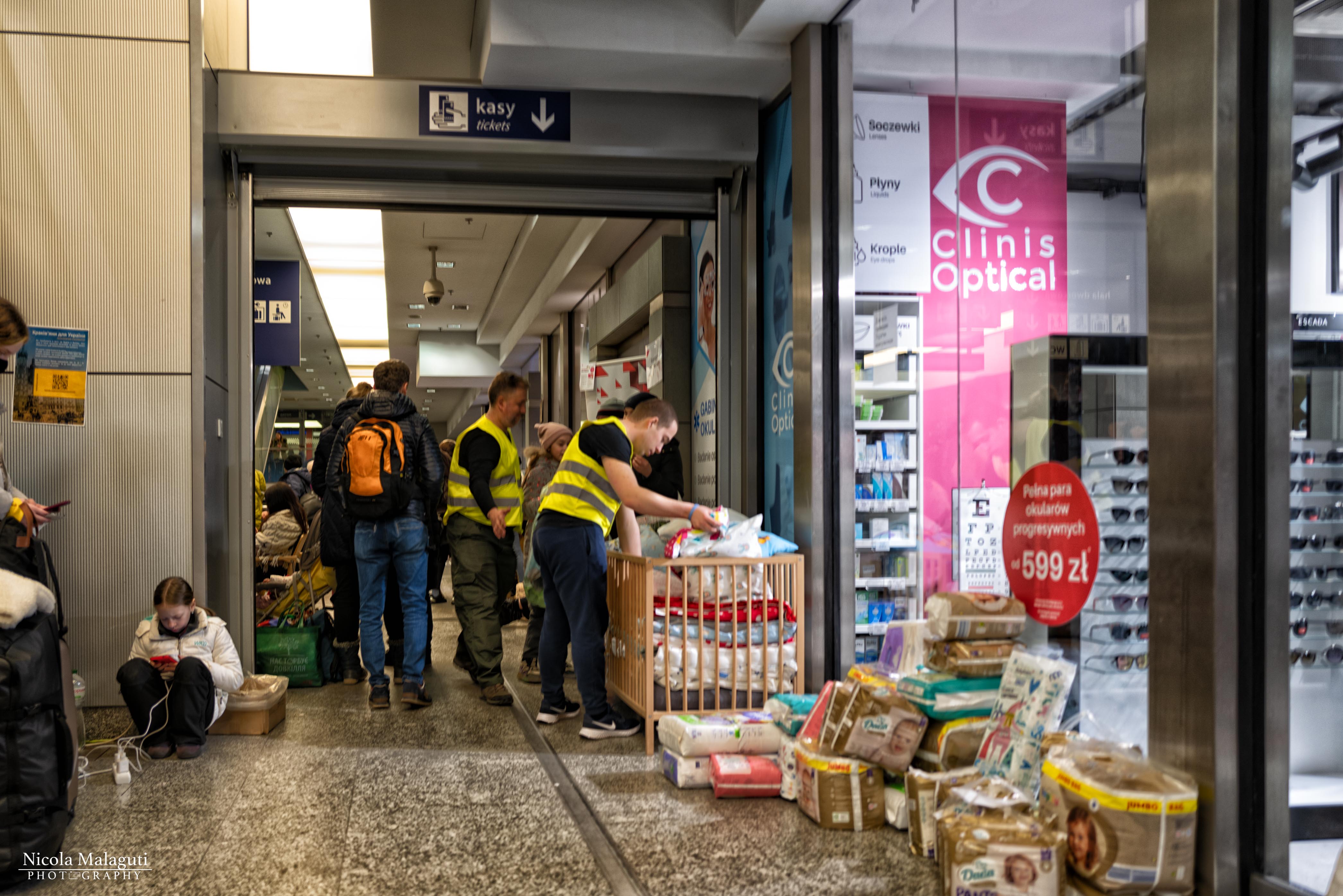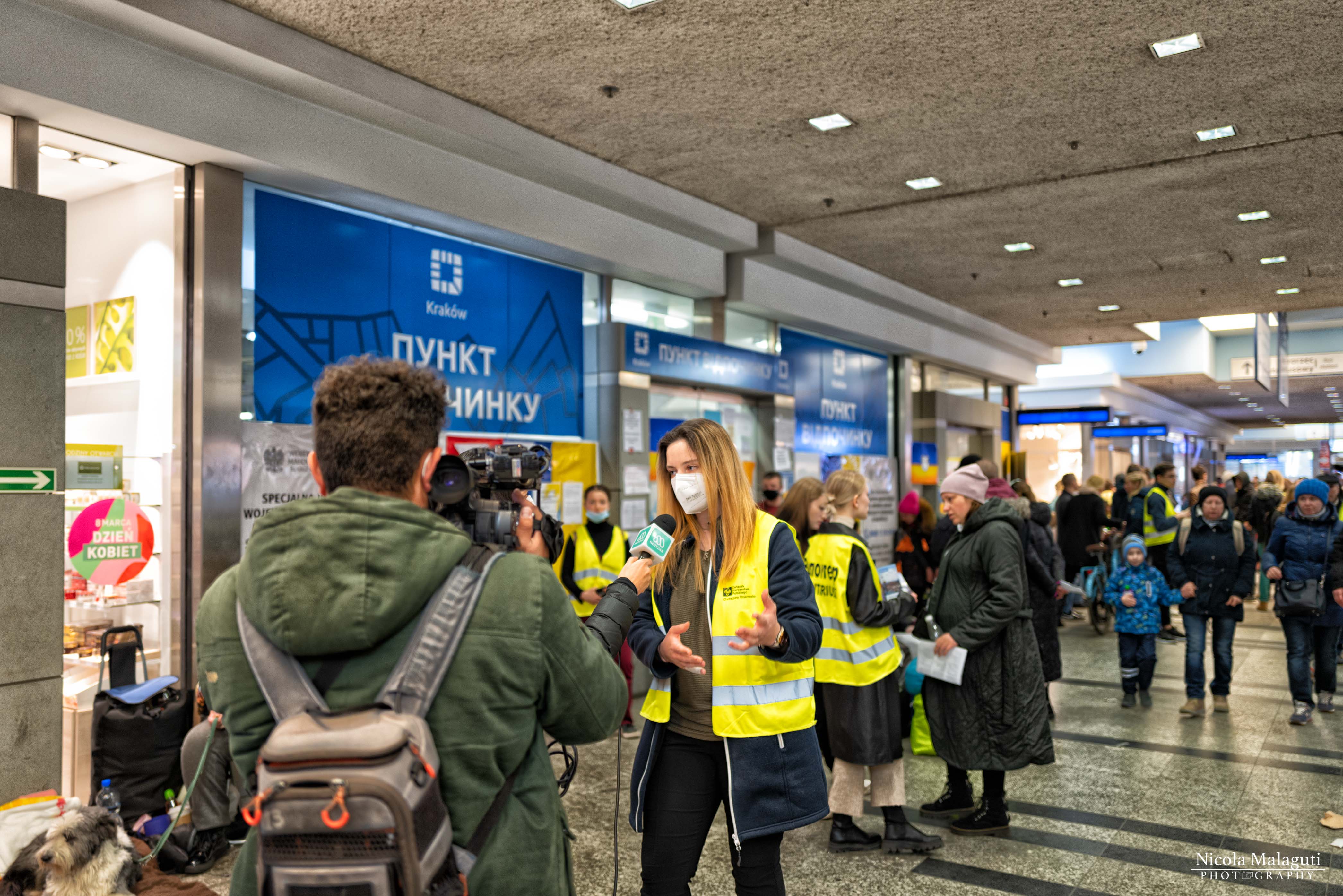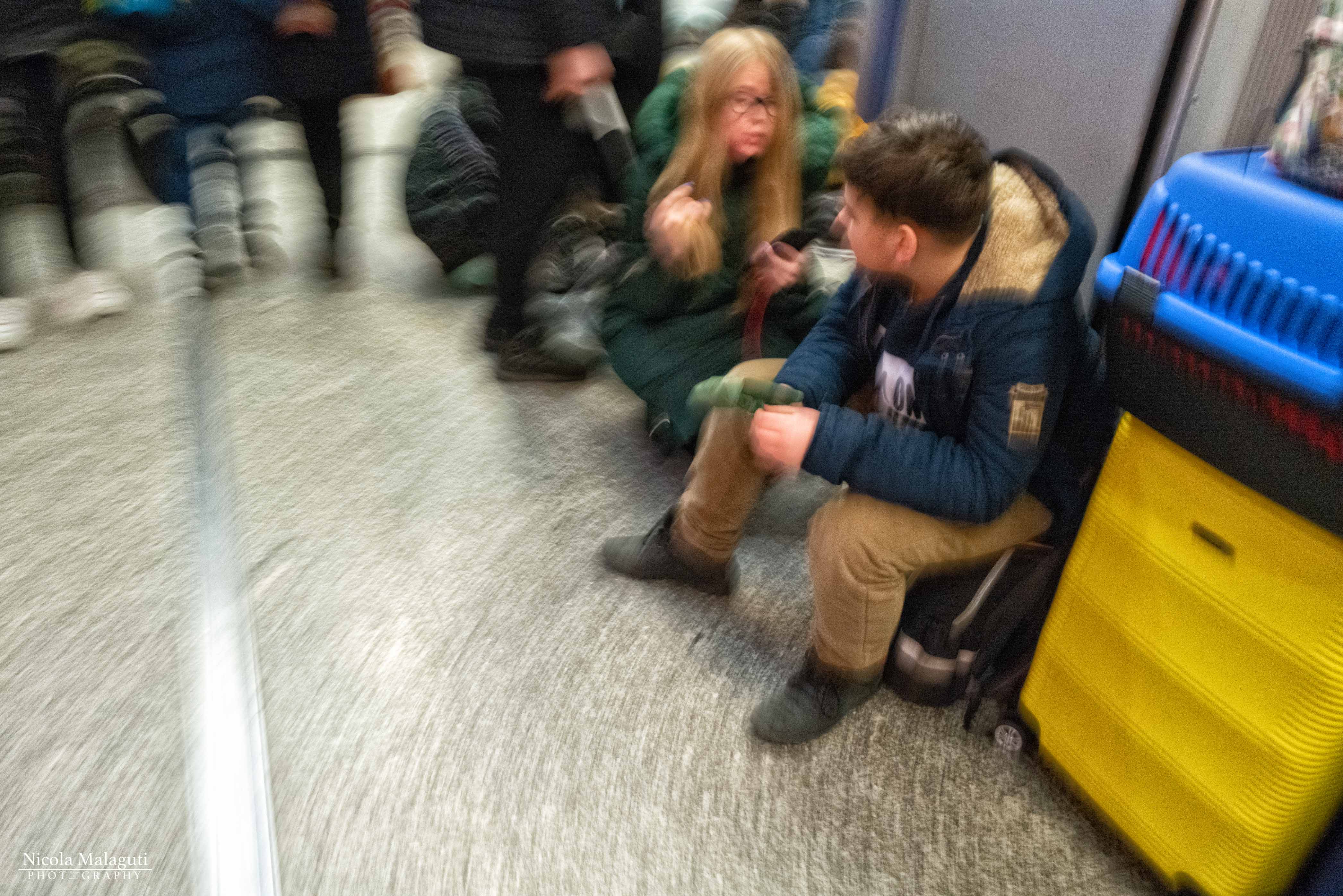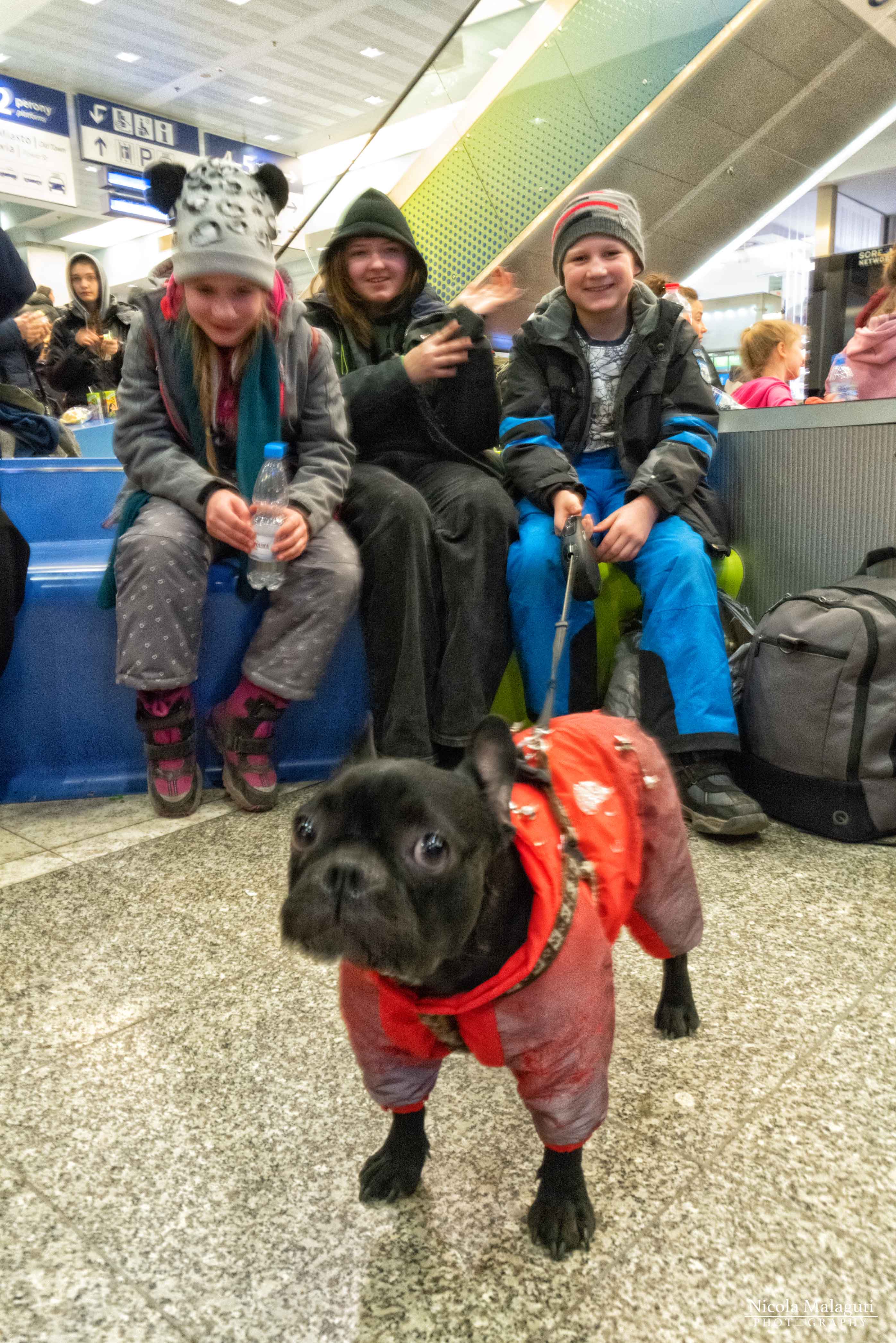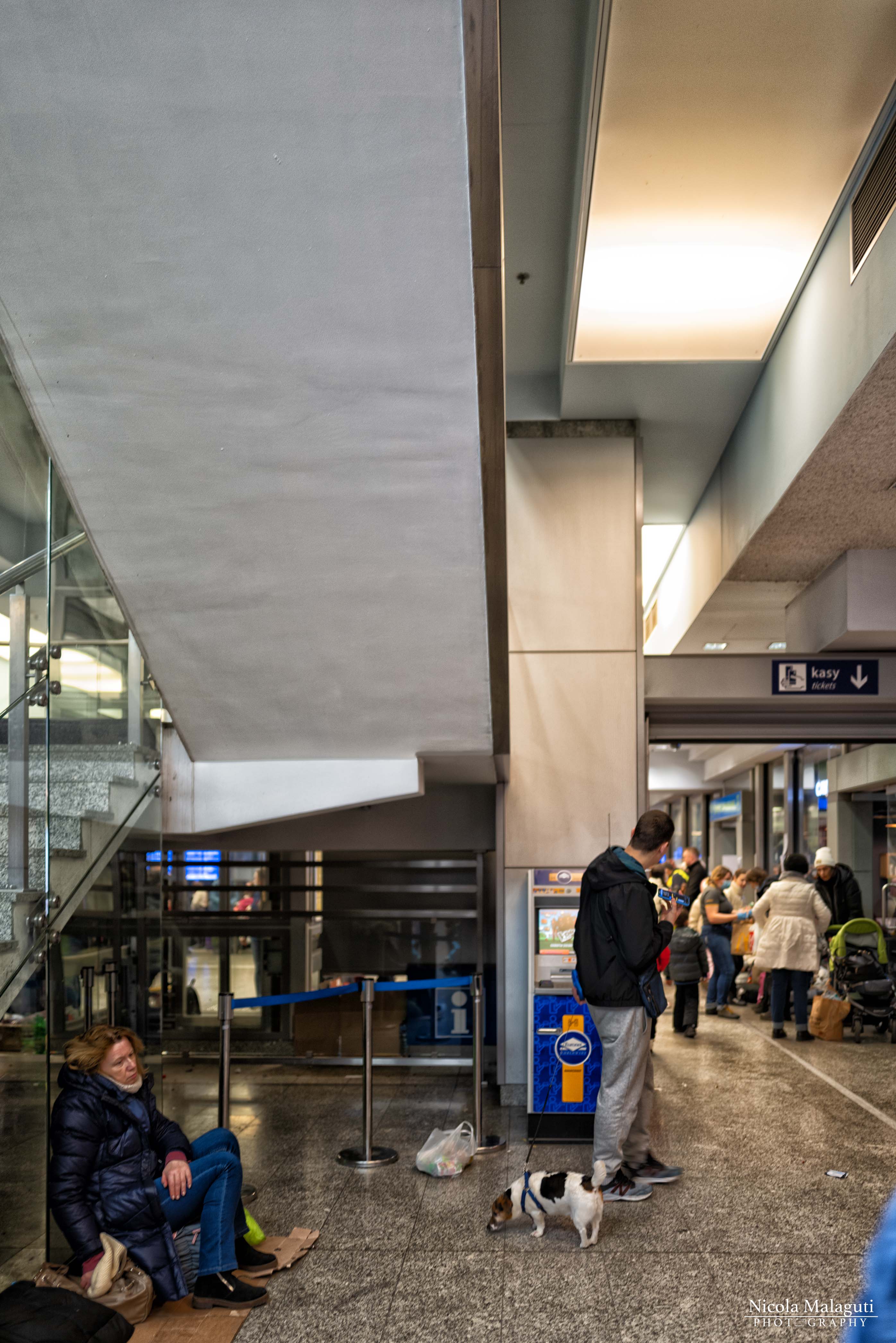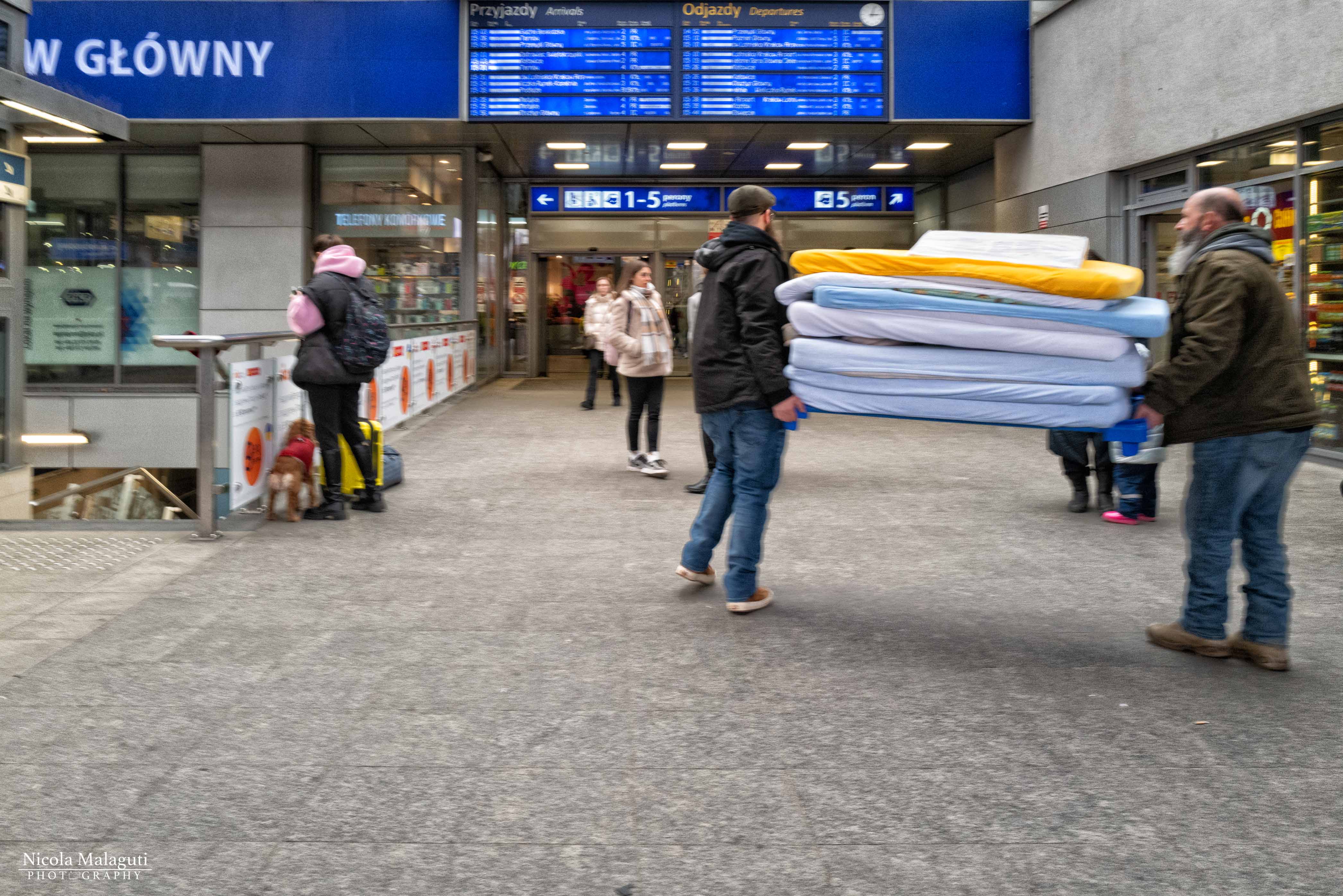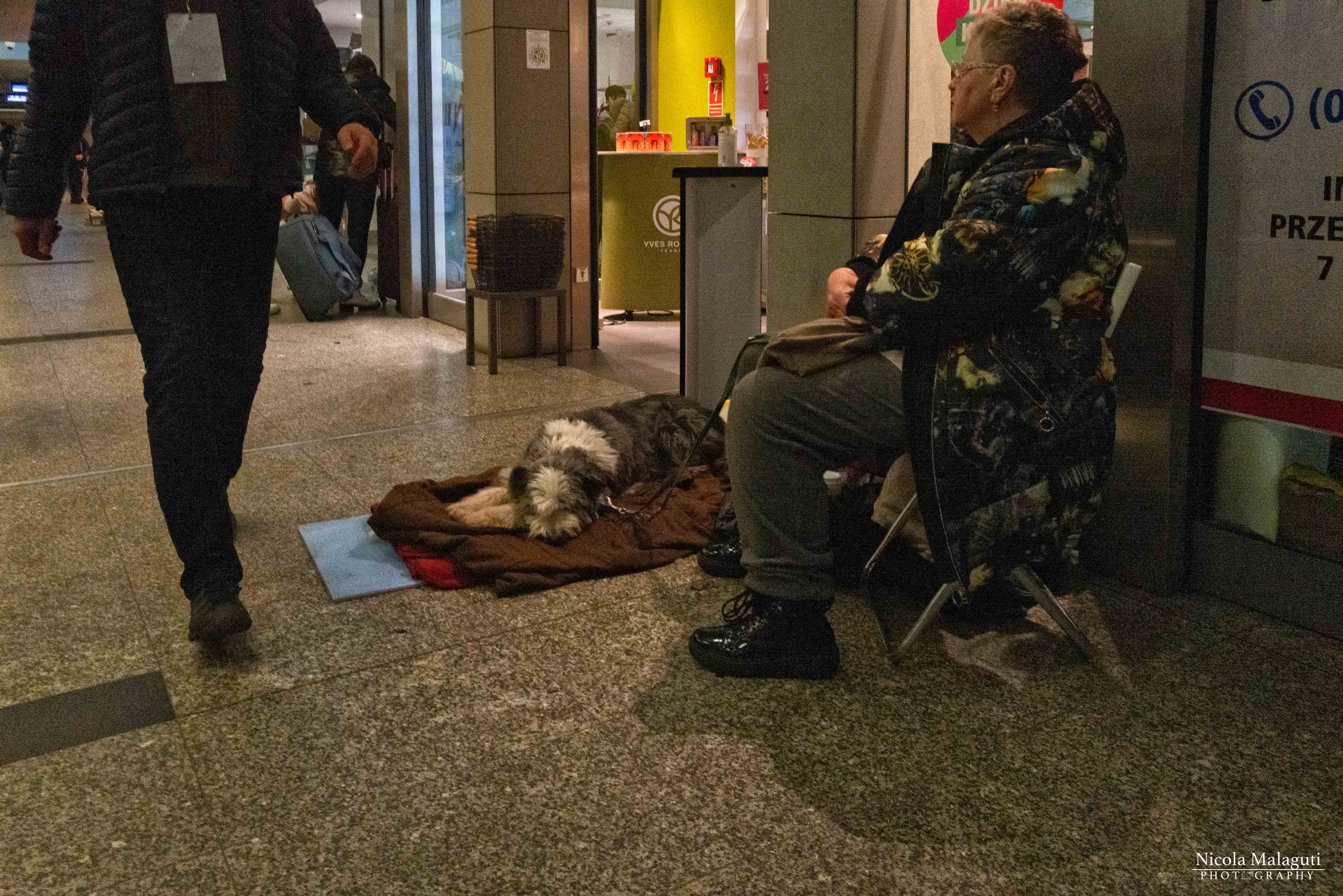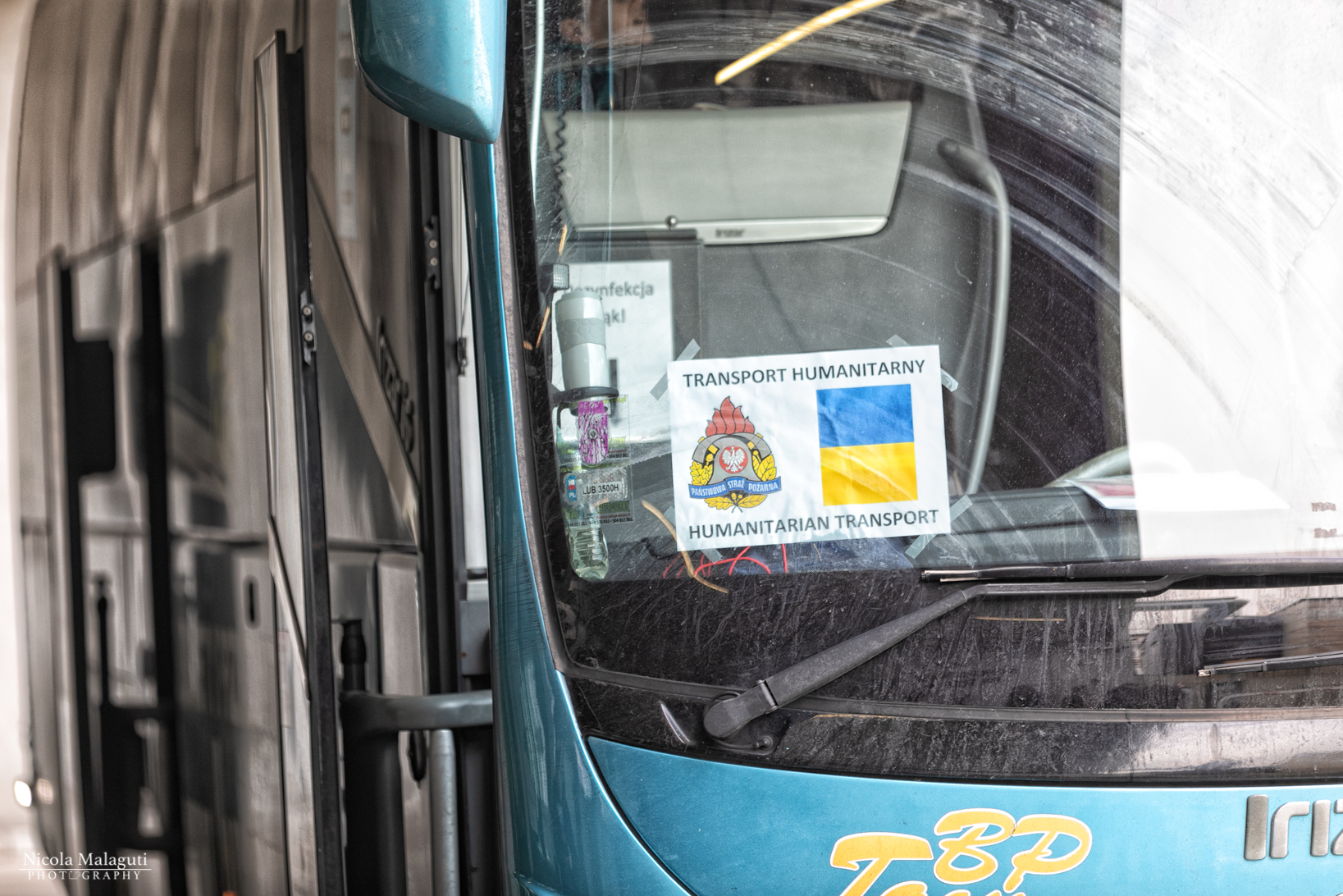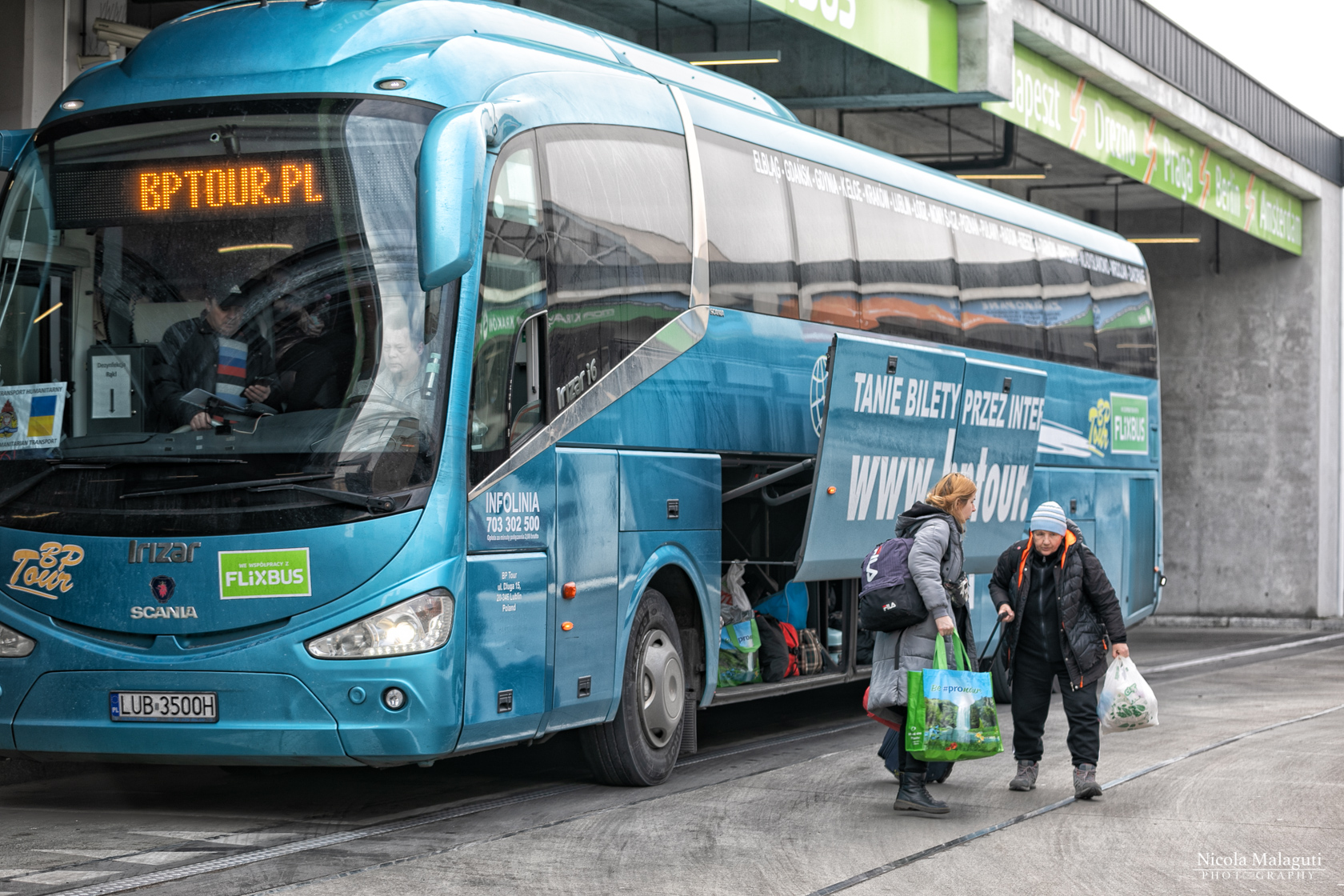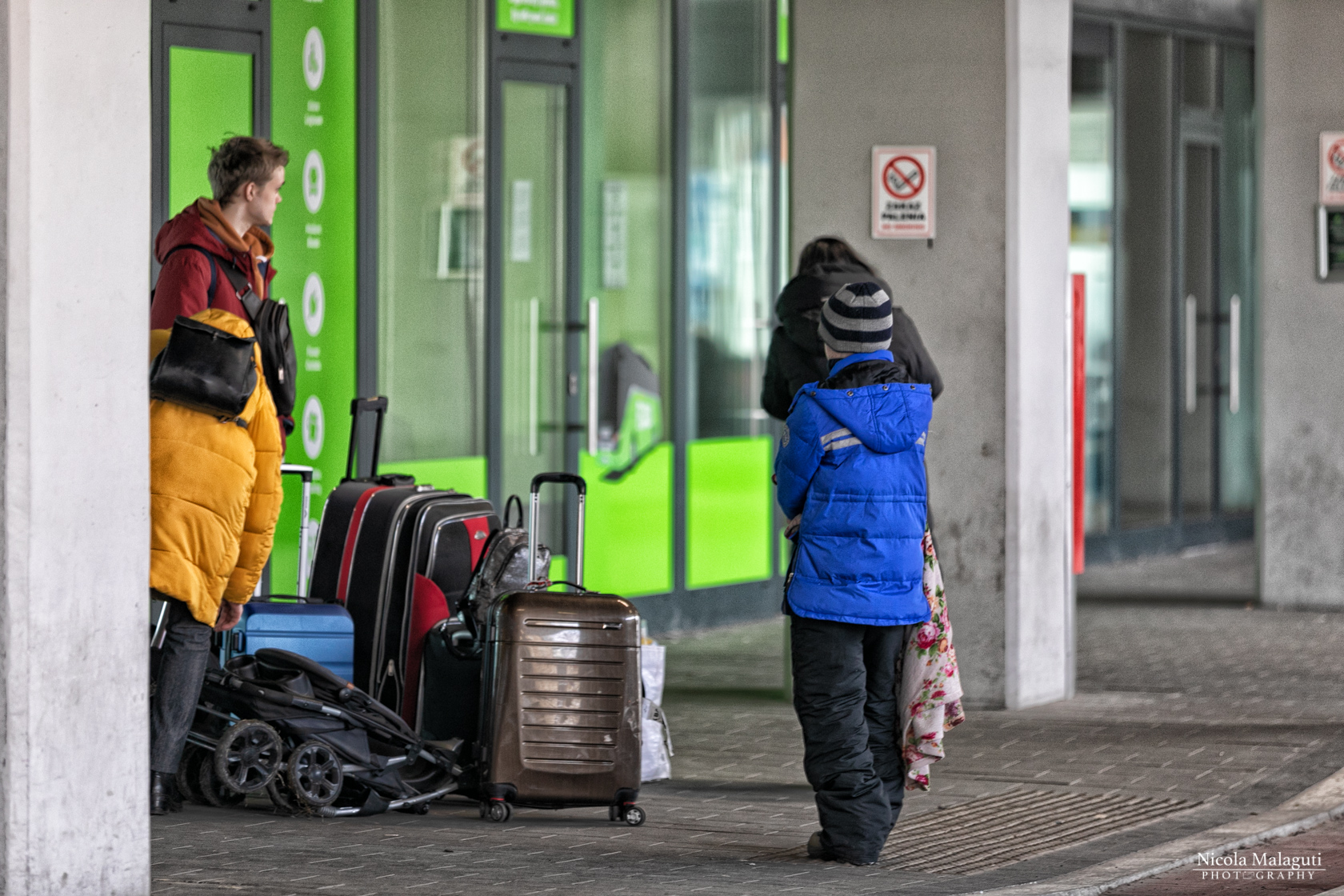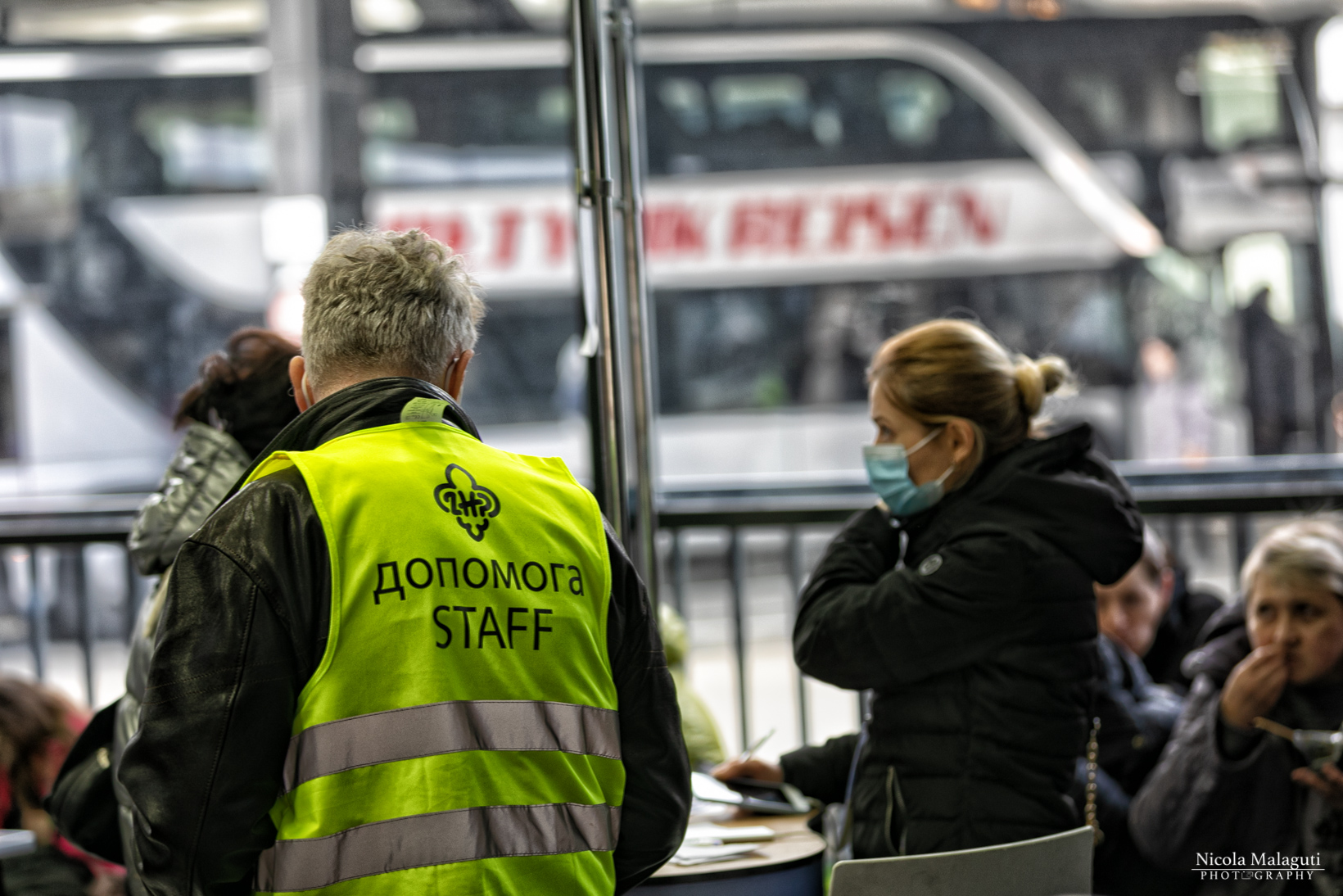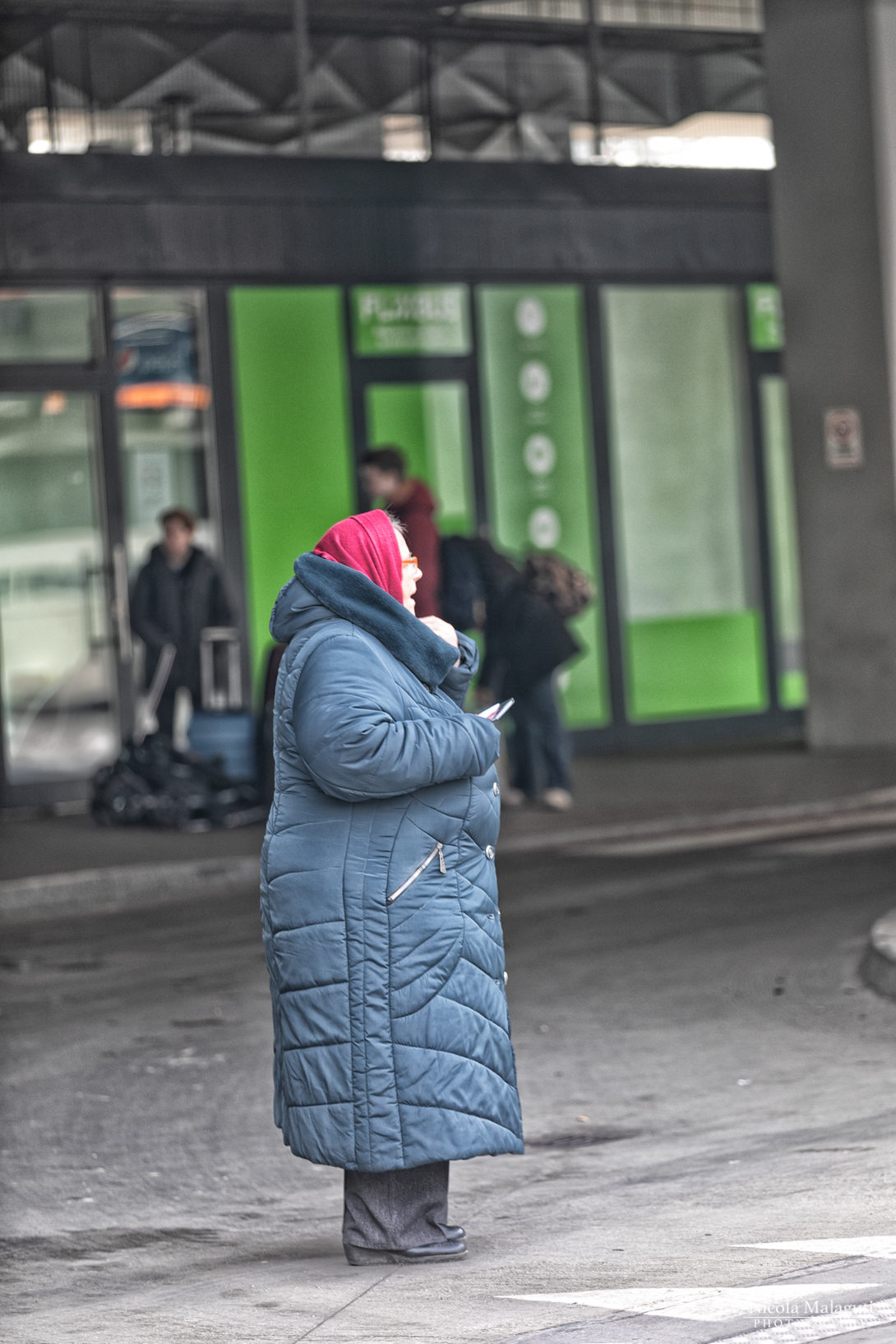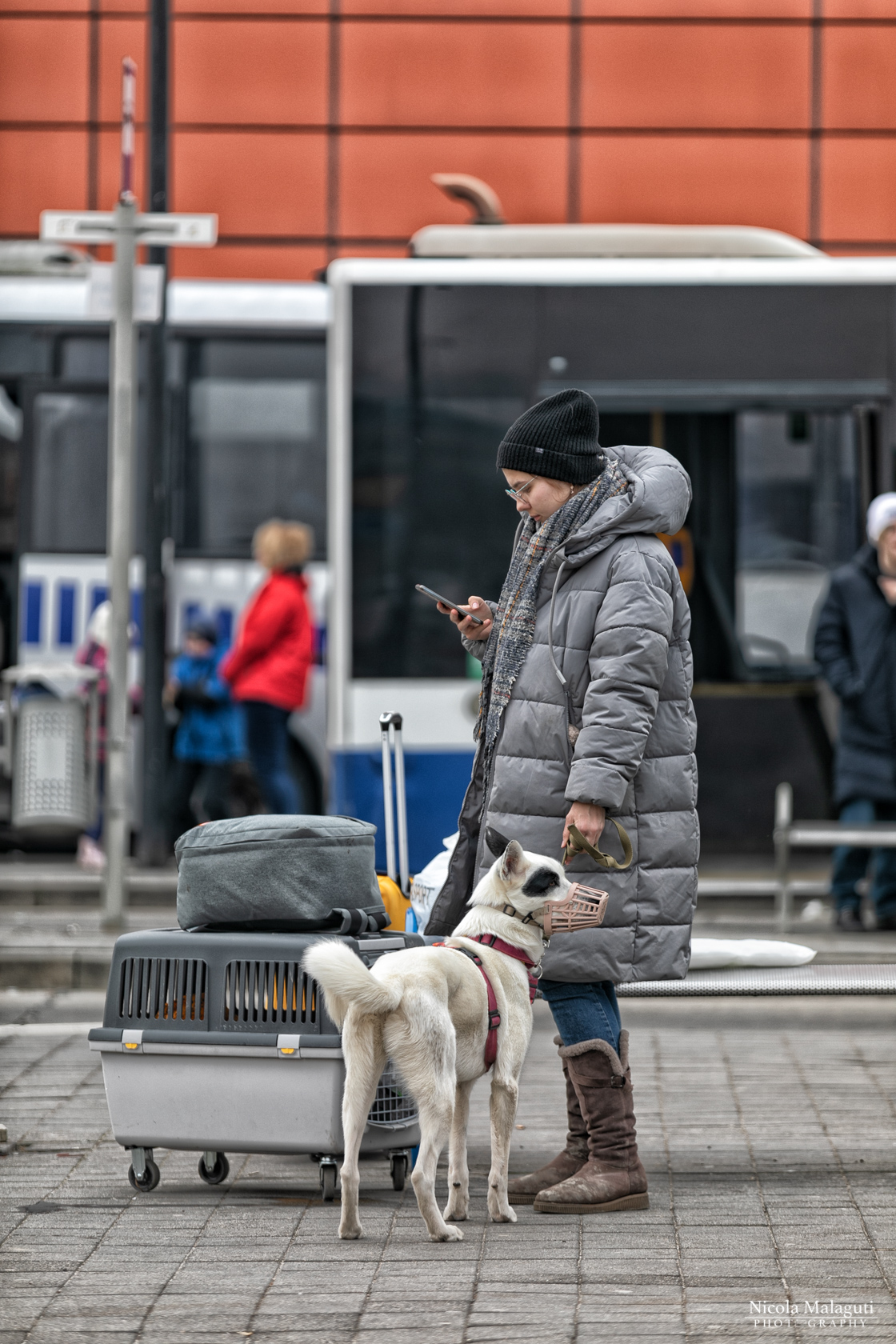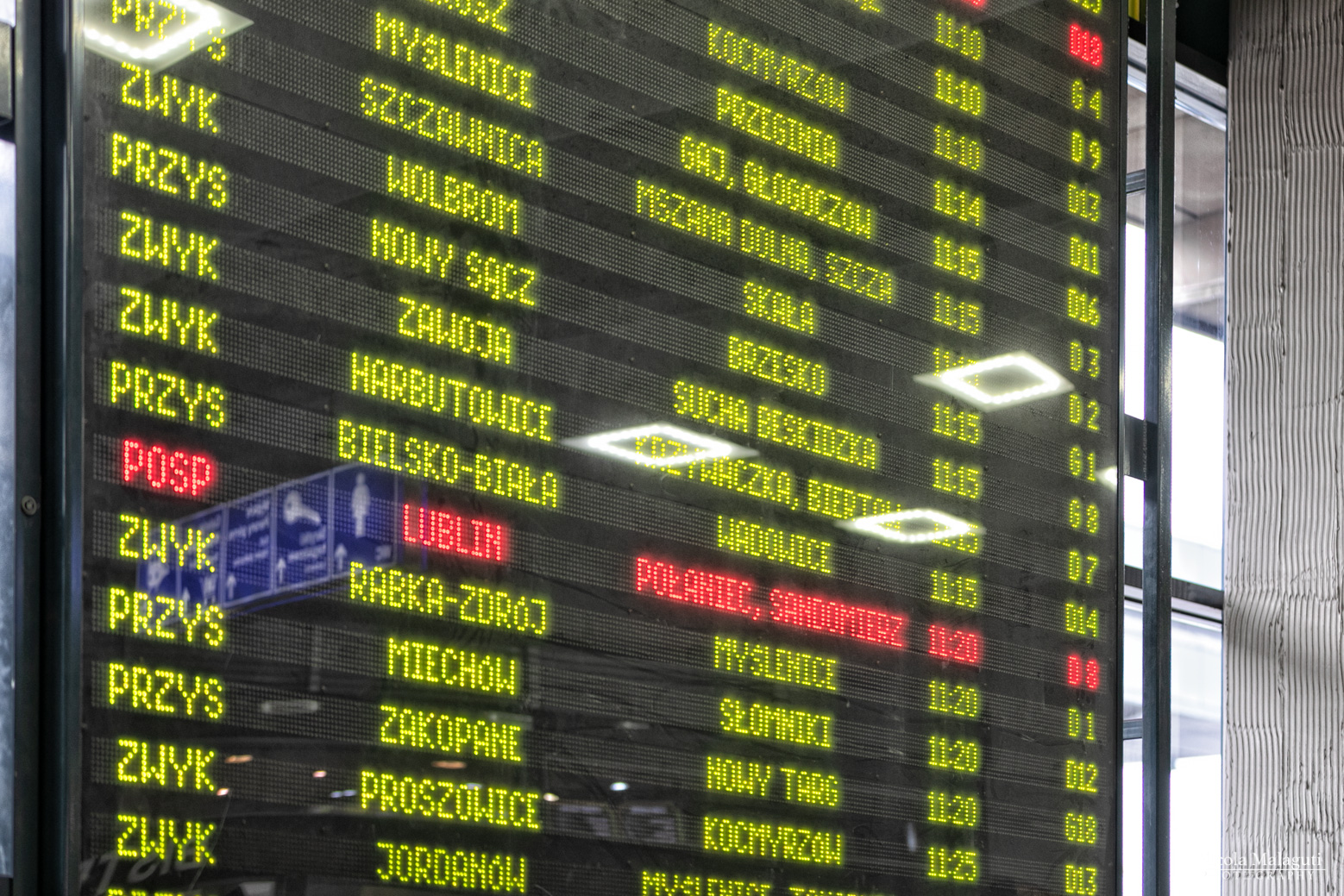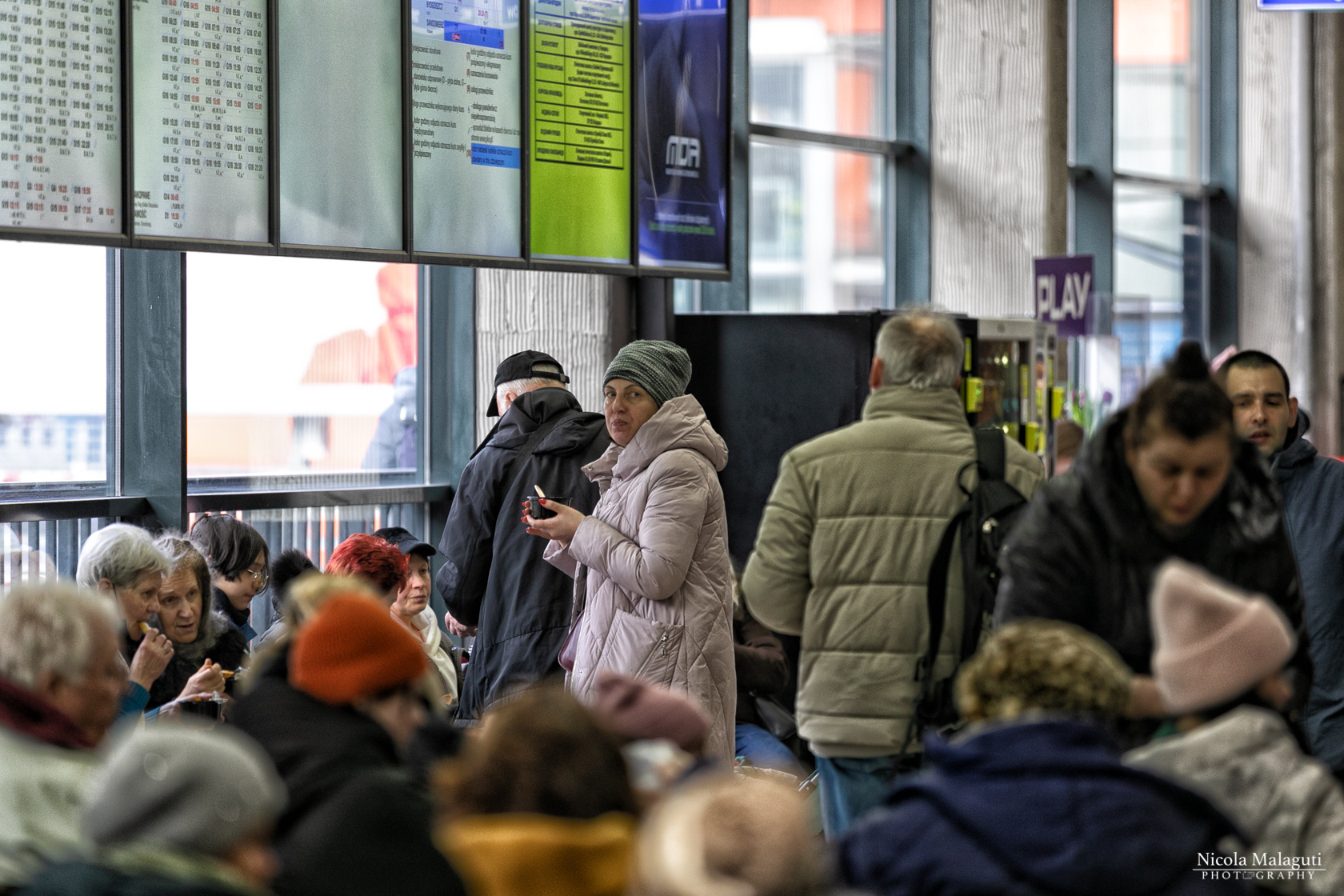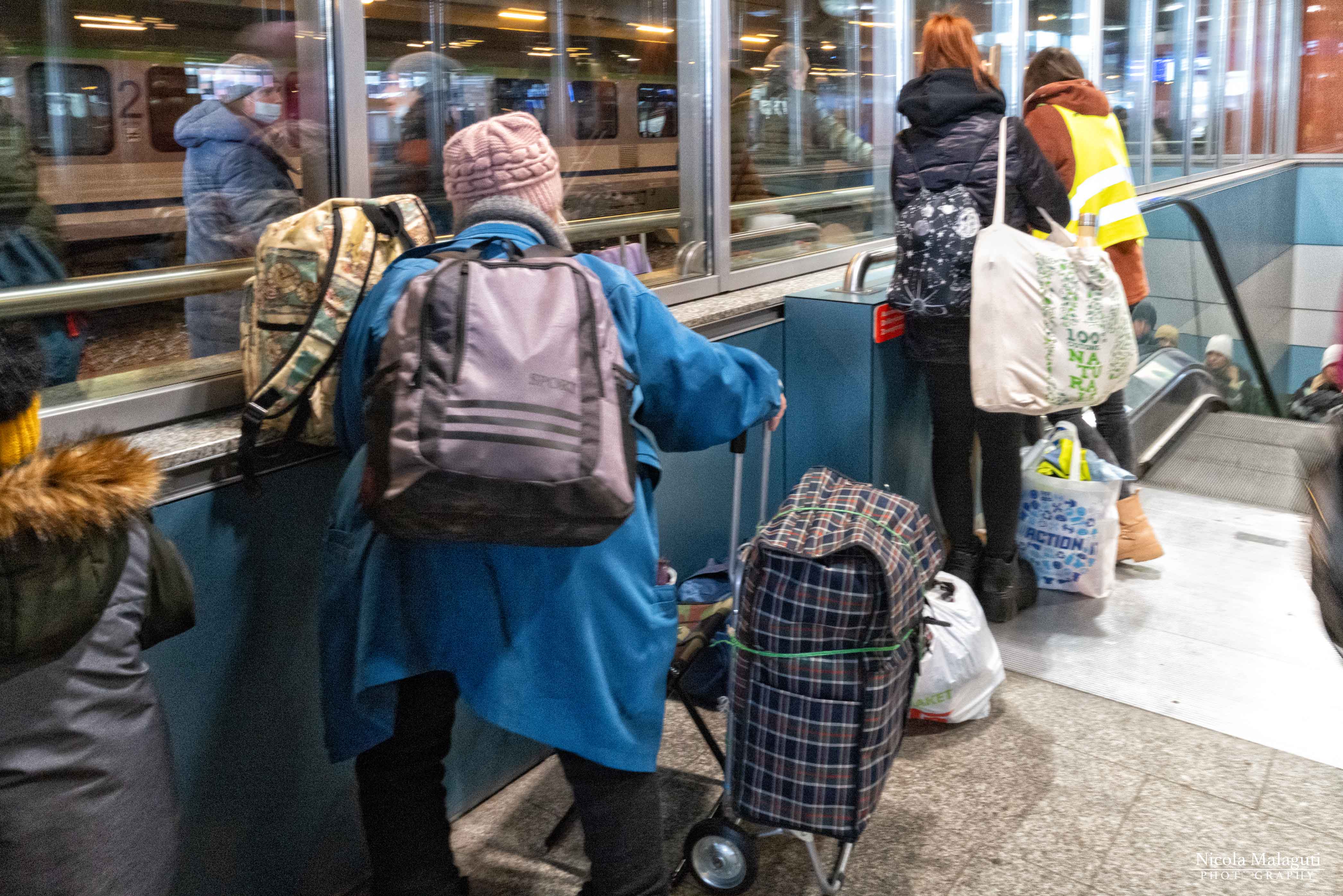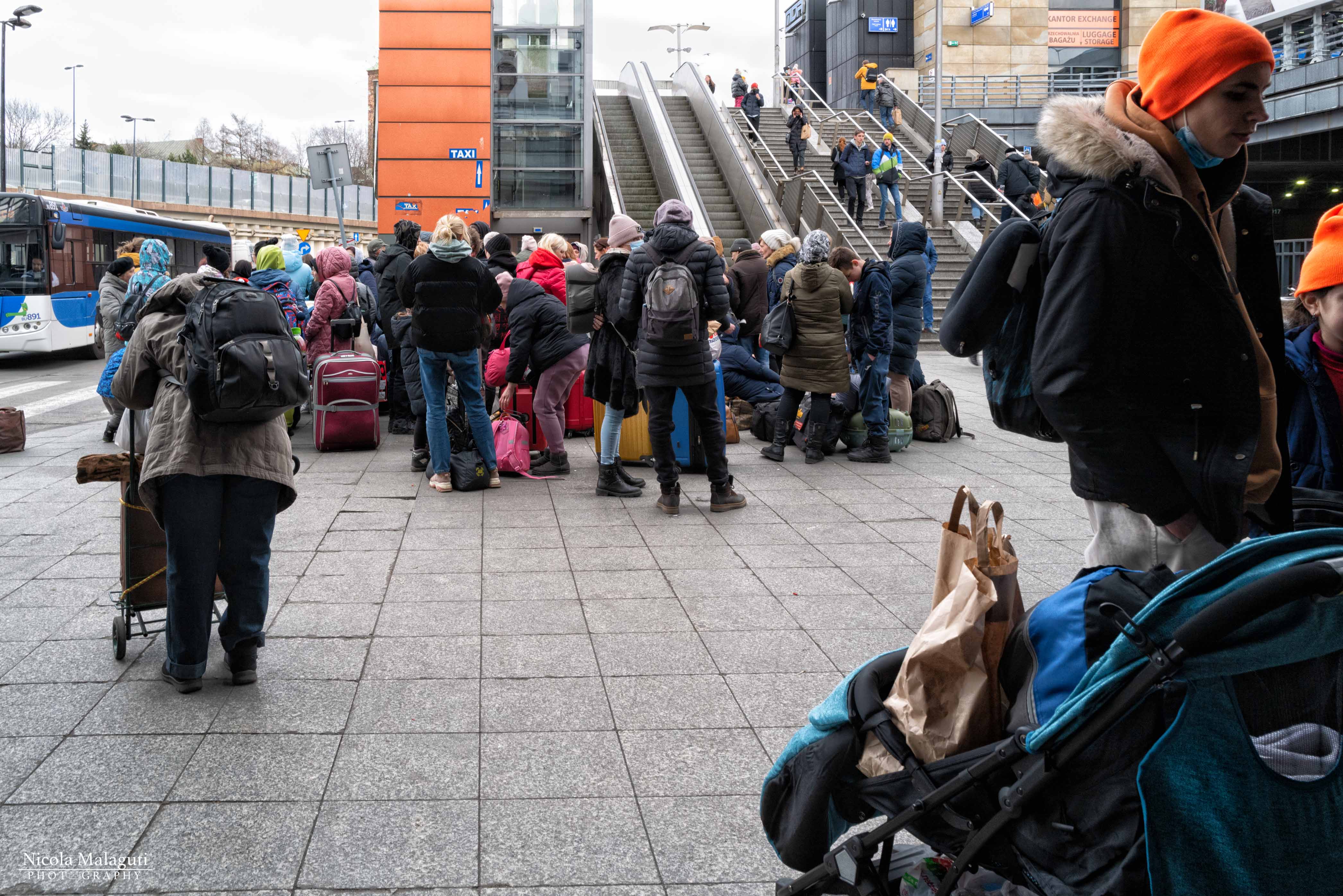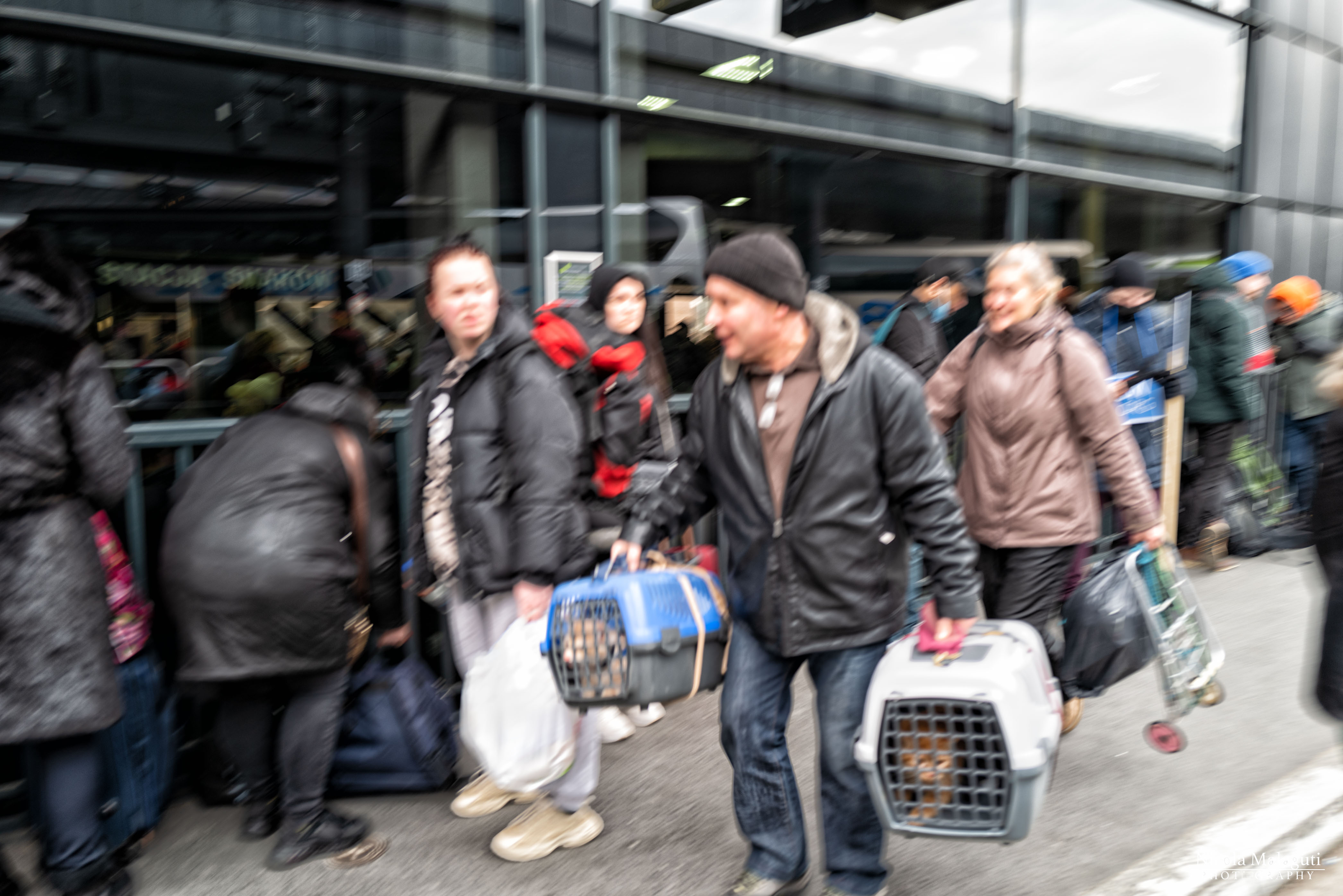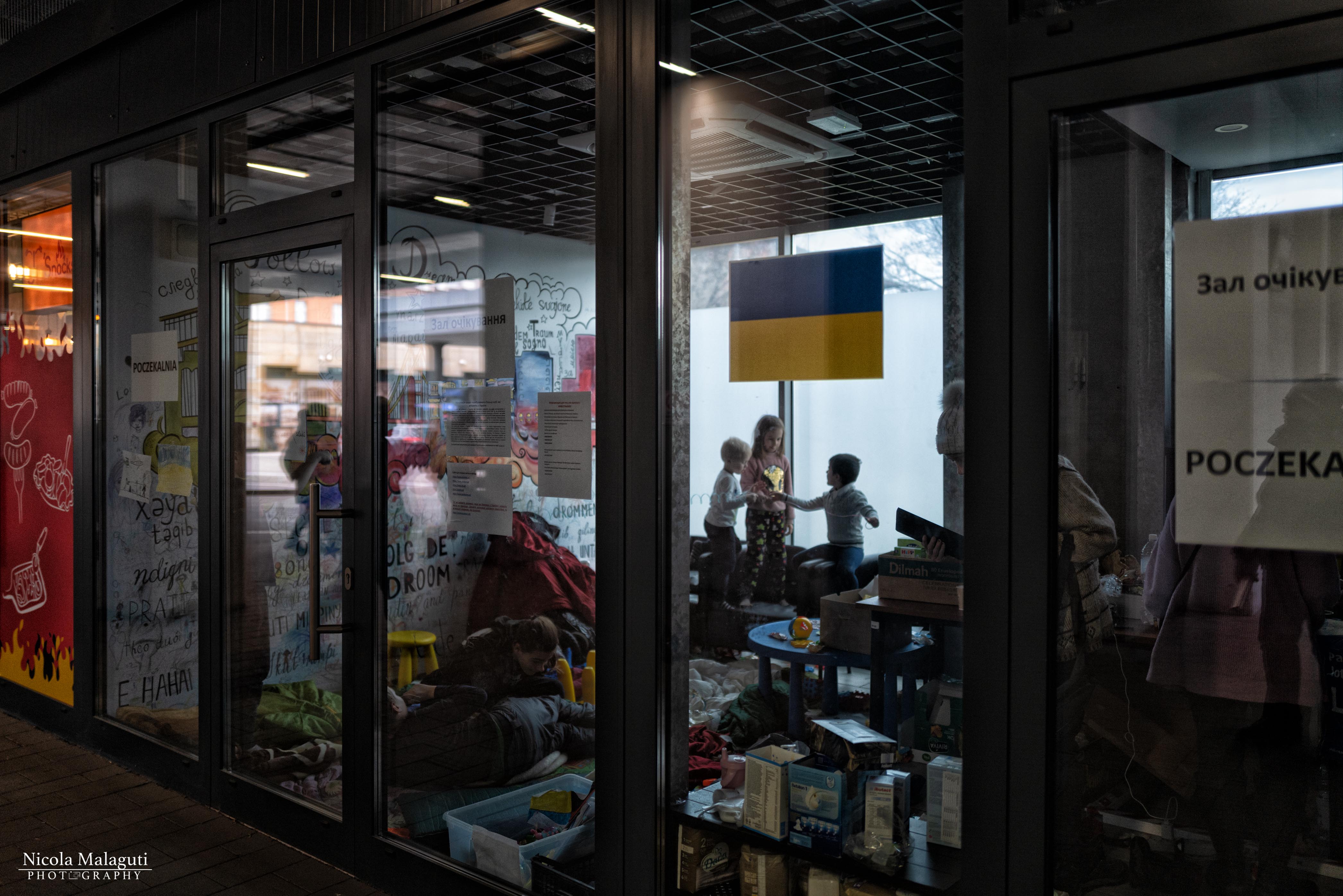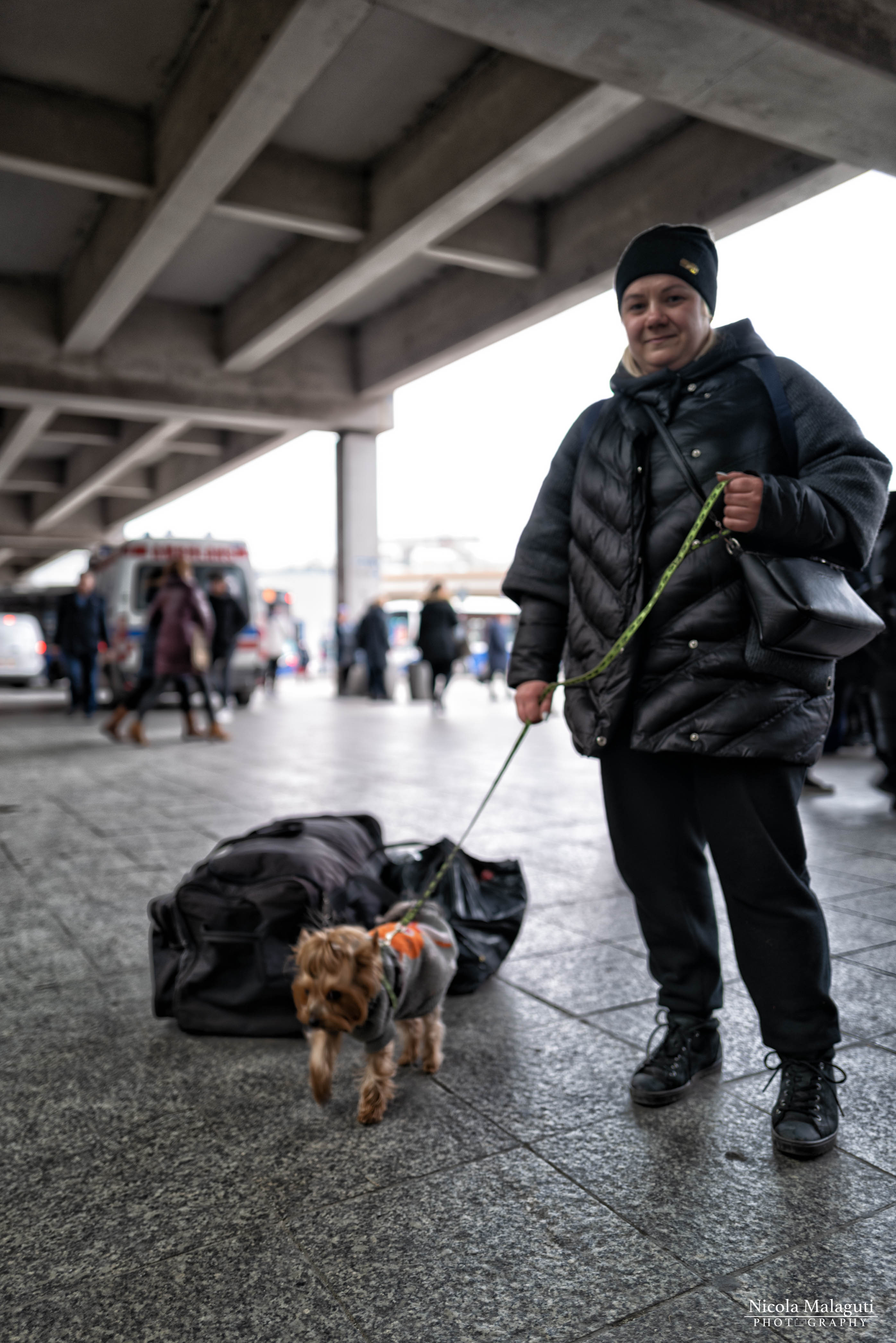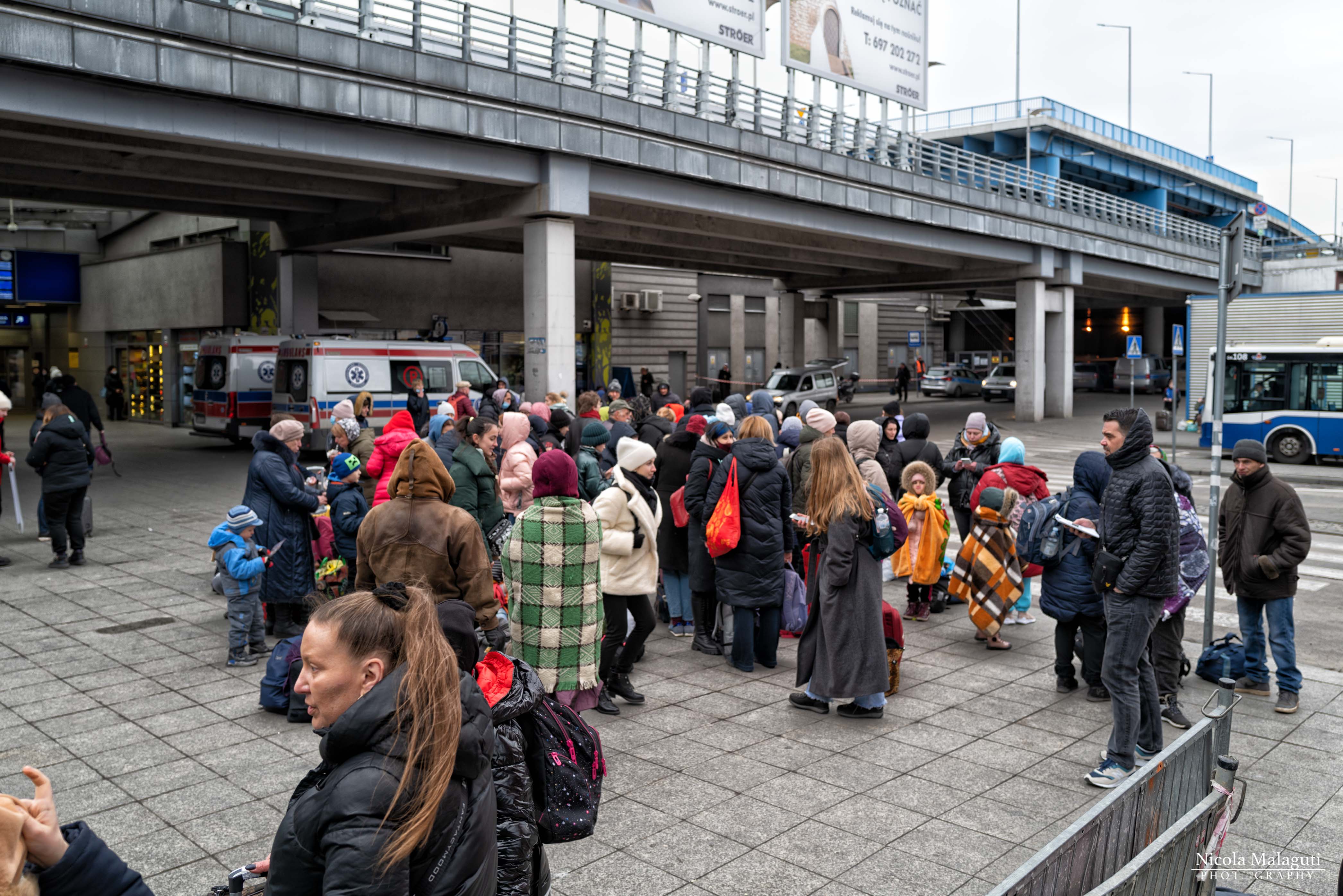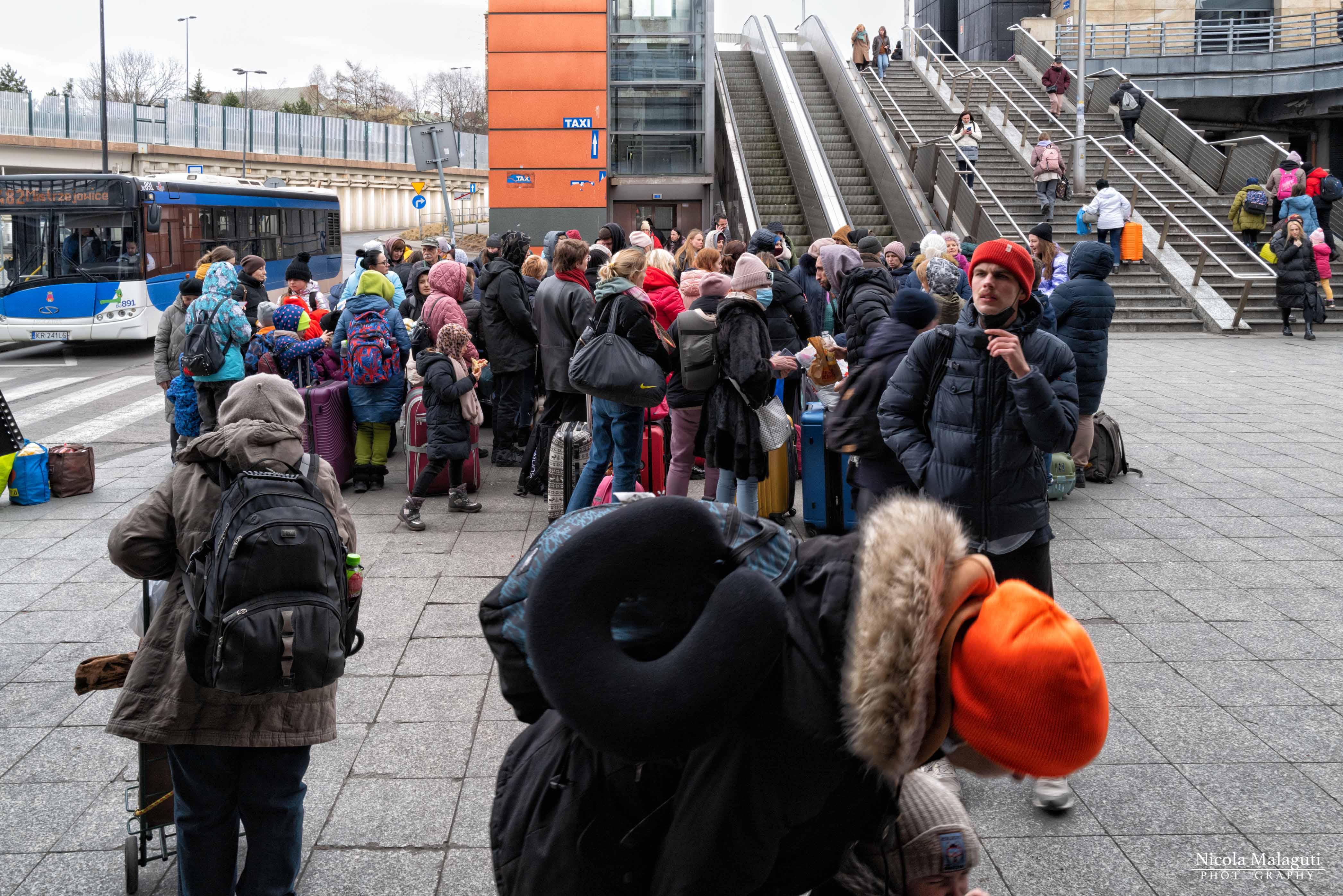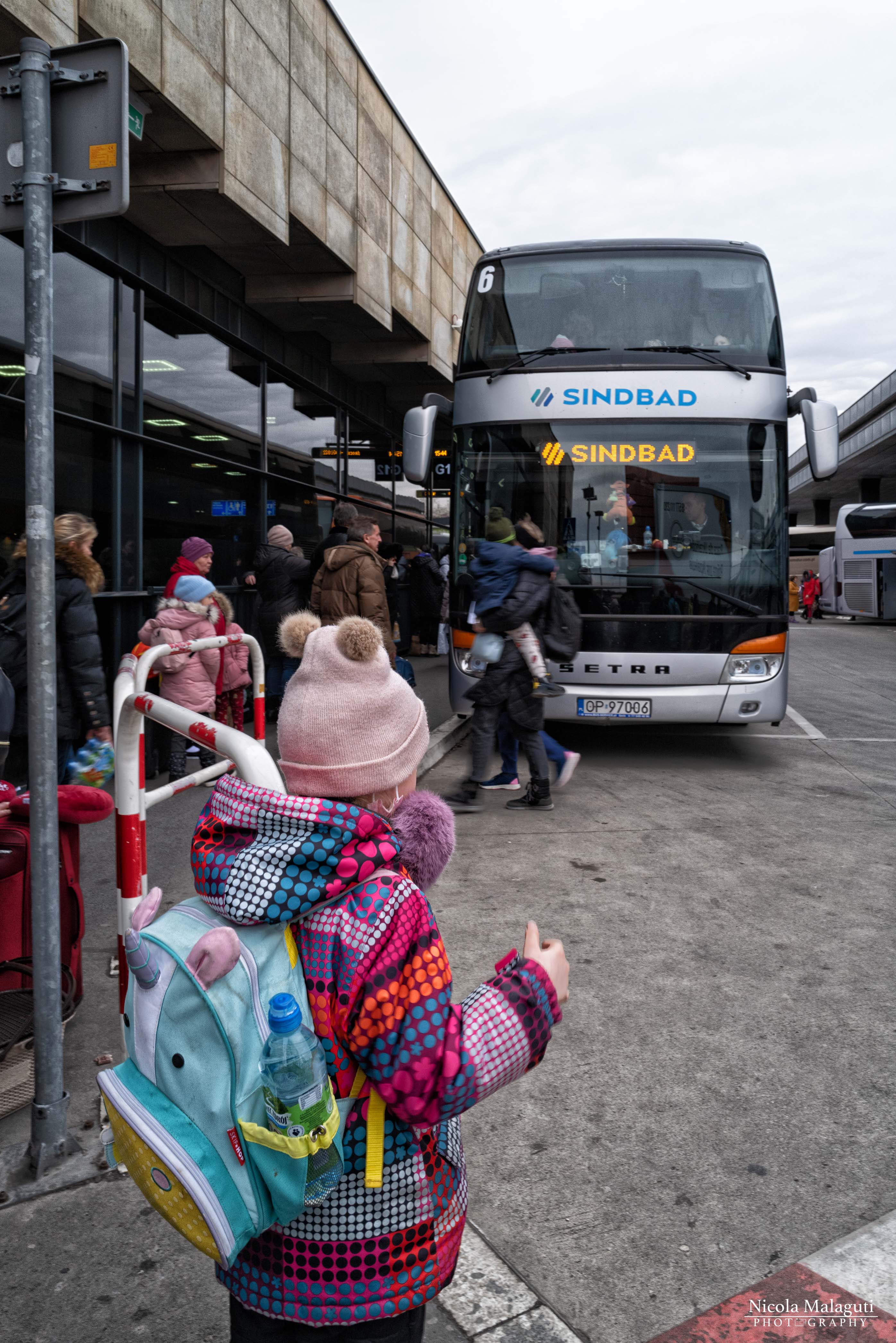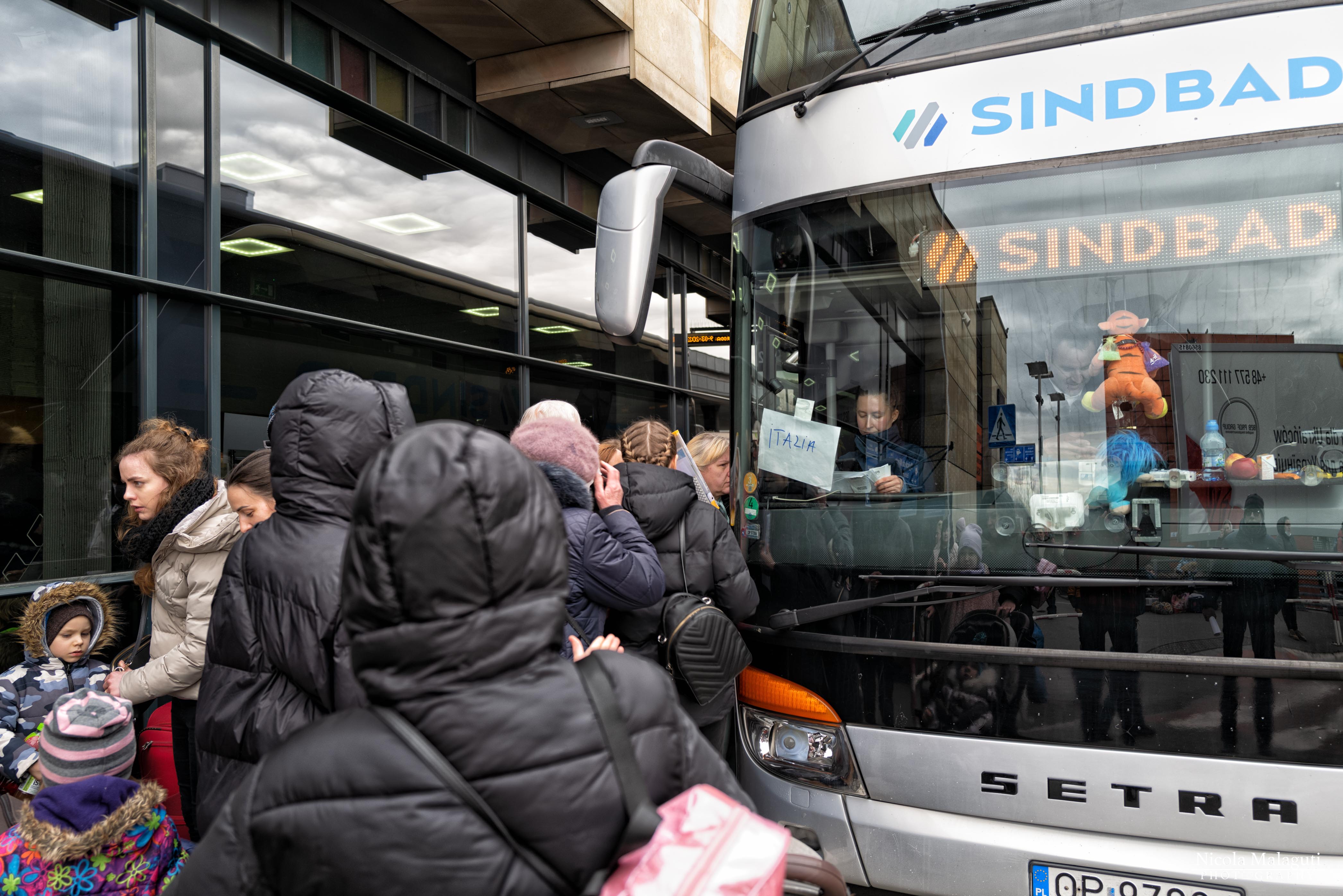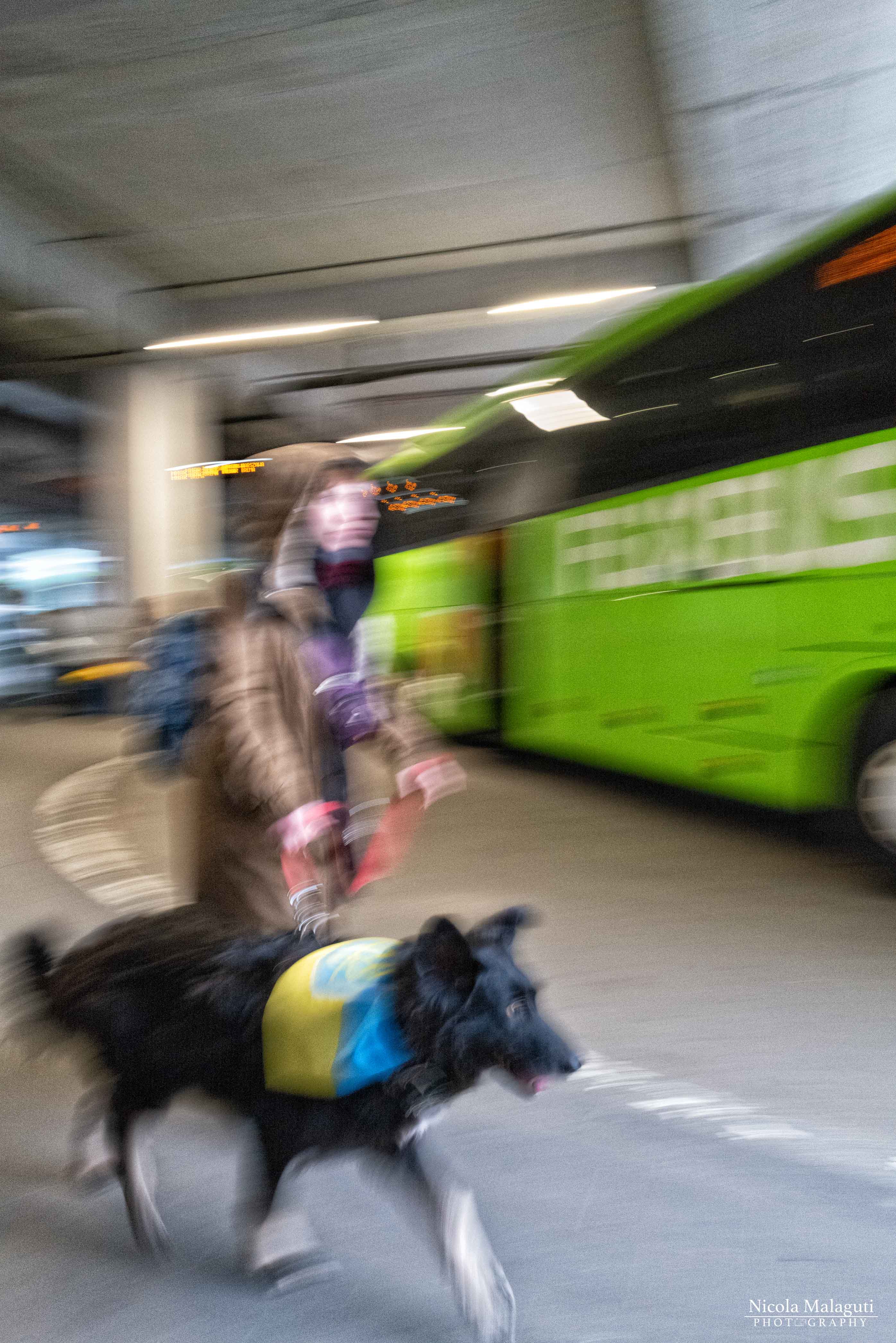News
WAR AND CONFLICTS - Ukraine Escape
Stazione Kraków Główny
09/03/2022
L’accoglienza
Dopo la fuga dall'Ucraina, il tempo sospeso nella stazione di Cracovia
Le immagini dallo scalo ferroviario della grande città polacca, dove centinaia di persone sfollate attendono di poter proseguire il viaggio
Cracovia, con i suoi settecentomila abitanti, è la seconda città più popolosa della Polonia. Nelle immediate vicinanze c'è Katowice, la città natale di Giovanni Paolo II, ma anche i lager nazisti di Auschwitz e Birekenau, oggi musei dell'orrore. La frontiera ucraina dista 250 km, altri 50 e si arriva a Leopoli. Bastano due ore di macchina anche per raggiungere i confini con la Repubblica Ceca e con la Slovacchia. Oggi torna a essere un crocevia della storia: la principale stazione ferroviaria, è diventata un grande accampamento dove sostano centinaia di persone provenienti dall'Ucraina, che aspettano permessi e passaggi per raggiungere altre destinazioni. Ci sono donne e uomini di ogni età, con uno o due bagagli al seguito, trasportini, passeggini, cani e gatti salvati dalle bombe, tanti bambini che giocano. Dagli scatti non traspare sofferenza ma una paziente e ordinata attesa. Il meccanismo dell'accoglienza sembra funzionare, i volontari non si fermano un attimo, passano a decine tra gli sfollati portando cibo e prodotti per l'igiene personale, si prendono cura anche degli animali domestici.
Kraków Główny Station
09/03/2022
The reception
After the flight from Ukraine, time suspended in Krakow station
Images from the railway station of the big Polish city, where hundreds of displaced people are waiting to continue their journey
Krakow, with its seven hundred thousand inhabitants, is the second most populous city in Poland. In the immediate vicinity is Katowice, the birthplace of John Paul II, as well as the Nazi concentration camps of Auschwitz and Birekenau, today museums of horror. The Ukrainian border is 250 km away, another 50 and you arrive in Lviv. A two-hour drive is also enough to reach the borders with the Czech Republic and Slovakia. Today it is once again a crossroads of history: the main train station has become a large camp where hundreds of people from the Ukraine stop, waiting for permits and passes to reach other destinations. There are women and men of all ages, with one or two pieces of luggage in tow, carriers, strollers, dogs and cats saved from the bombs, many children playing. From the shots, there is no suffering, but a patient and orderly waiting. The mechanism of reception seems to work, the volunteers do not stop for a moment, passing
